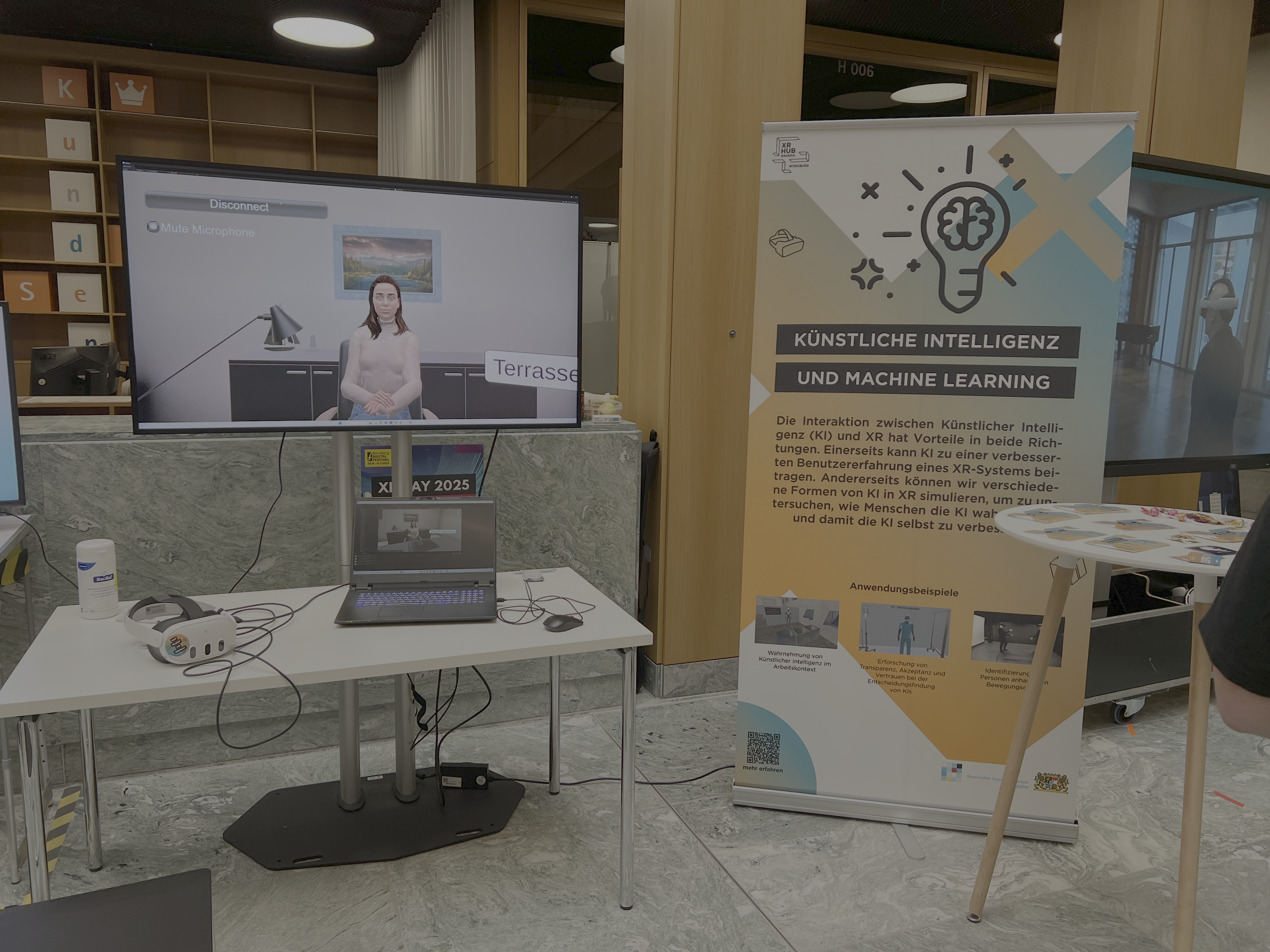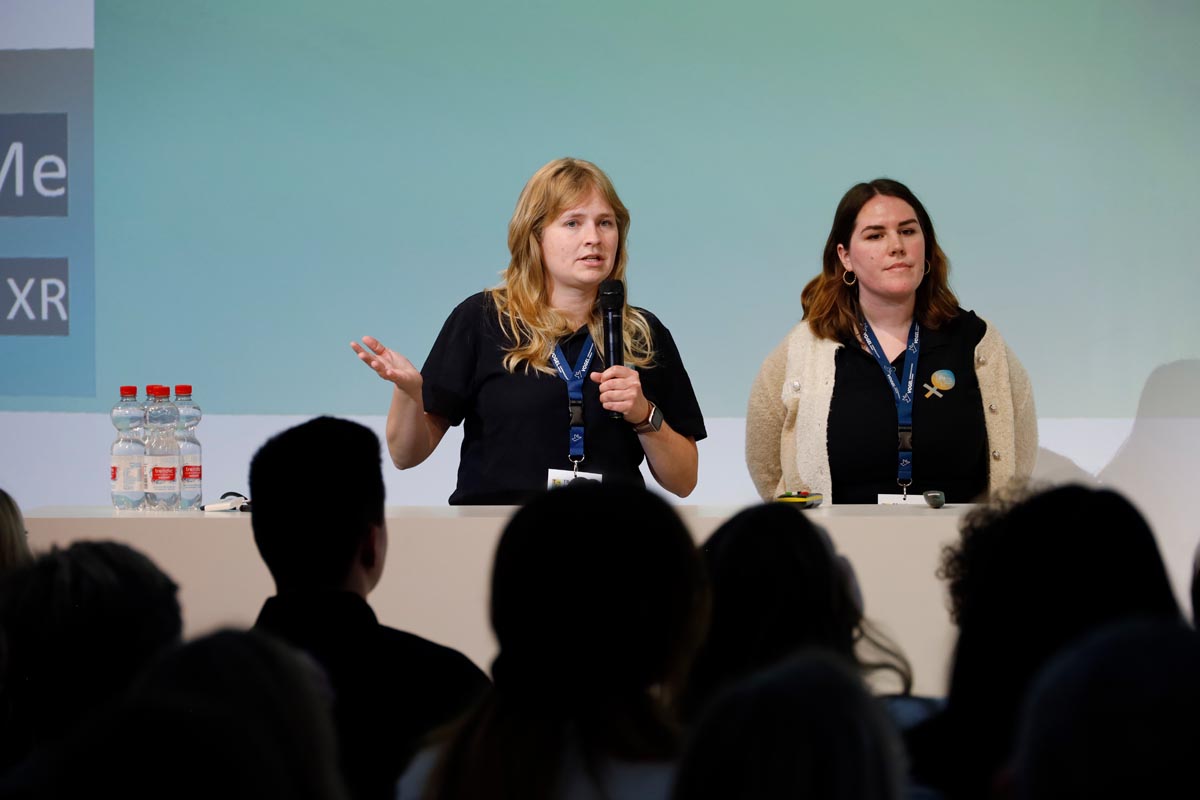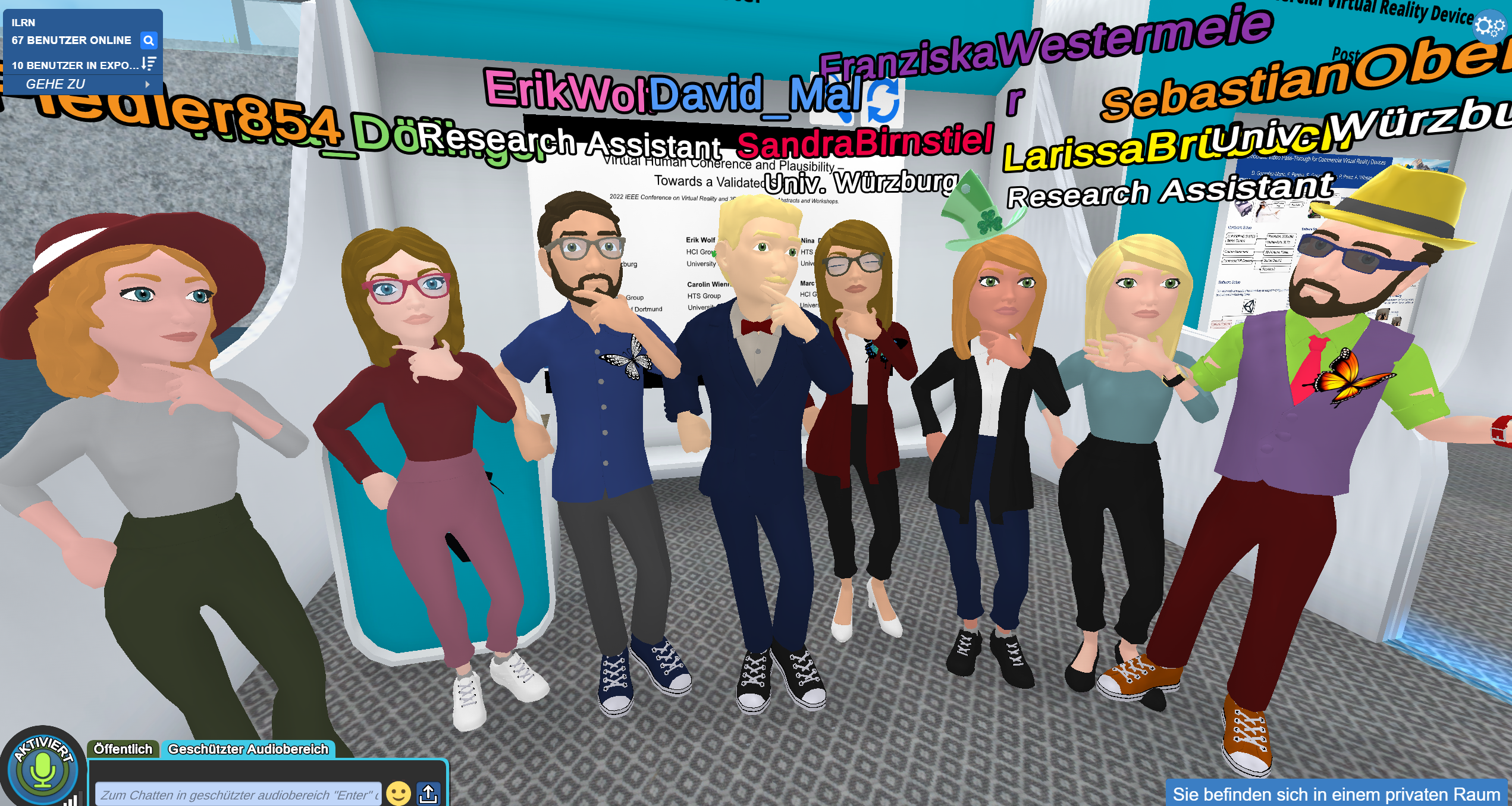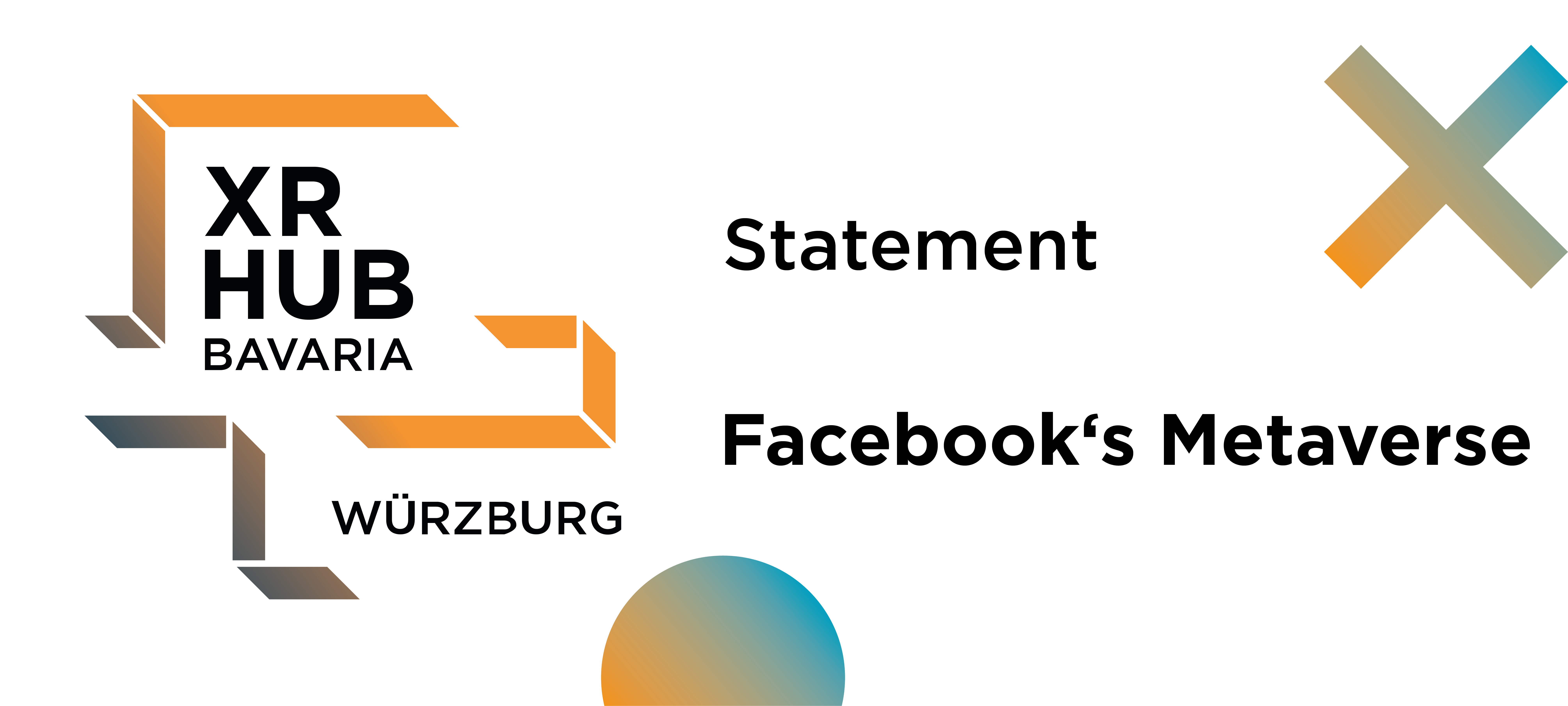XR in ...
Education and Training

Can you explain this with XR?
Learn more about how XR is used in education and training!
Co-Working and Creativity

Can I meet you in XR?
Learn more about how XR is going to change the way we work and create together!
Therapy and
Health

Getting better with XR?
Learn more about how XR technologies can help in therapy and health related fields!
AI and Machine Learning

How can AI benefit from XR technology?
Learn more about how AI can be developed and improved with the help of XR!
Fundamental Research and Knowledge Transfer

How do we know all of this about XR?
Learn more about the fundamental research that is the basis for all XR applications!
News

The Winter EXPO 2026 was a great success! With different demos and projects.
06 Feb 2026
More

We invite you to this year's Winter EXPO on the 6th of February!
21 Jan 2026
More

The Summer EXPO 2025 for HCI/HCS, CS and GE was a great success! A large number of visitors were able to experience up to 120 different demos and projects.
25 Jul 2025
More

We invite you to this year's summer EXPO on the 25th of July!
07 Jul 2025
More

A Hands-On Dive into XR Development with Full-Body Avatars
16 May 2025
More
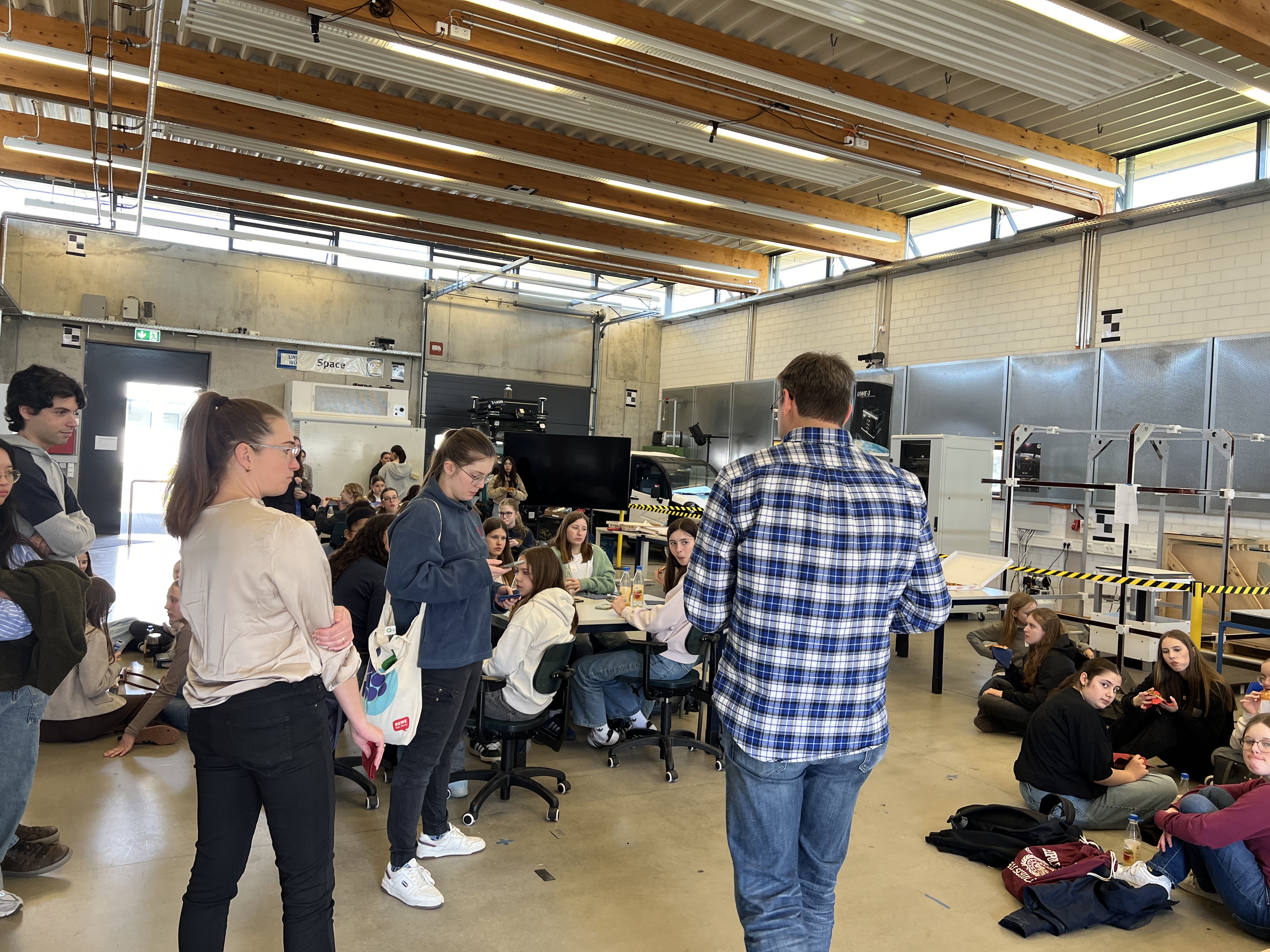
Girls' Day 2025 was a great success with almost 80 participants this year
03 Apr 2025
More
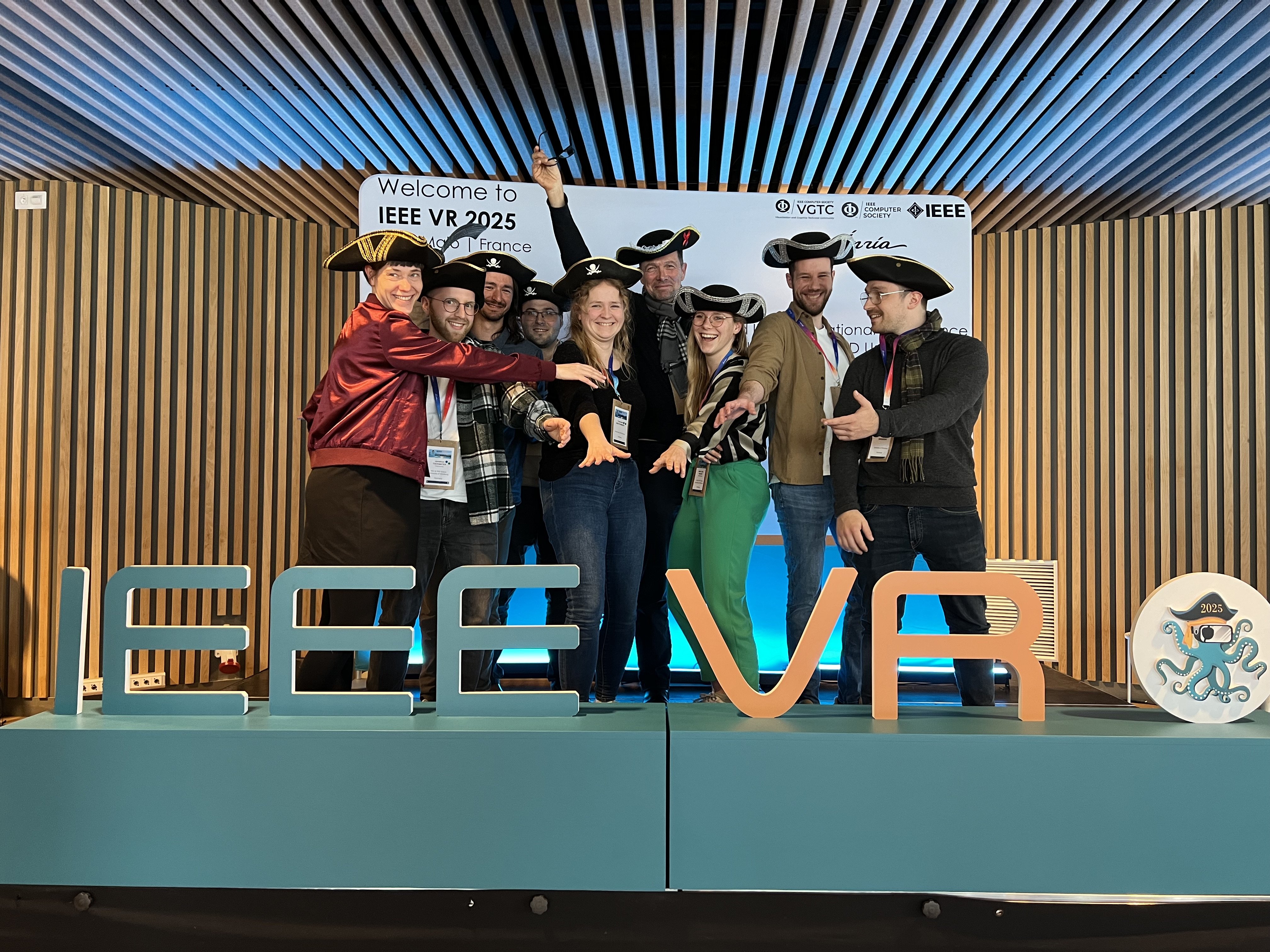
The HCI and PIIS group presented 11 publications at IEEE VR, receiving a Best Workshop Paper Award, an Honorable Mention Best Paper Award, and a Best Poster Award. Some of the projects were partially funded by the XR Hub.
24 Mar 2025
More
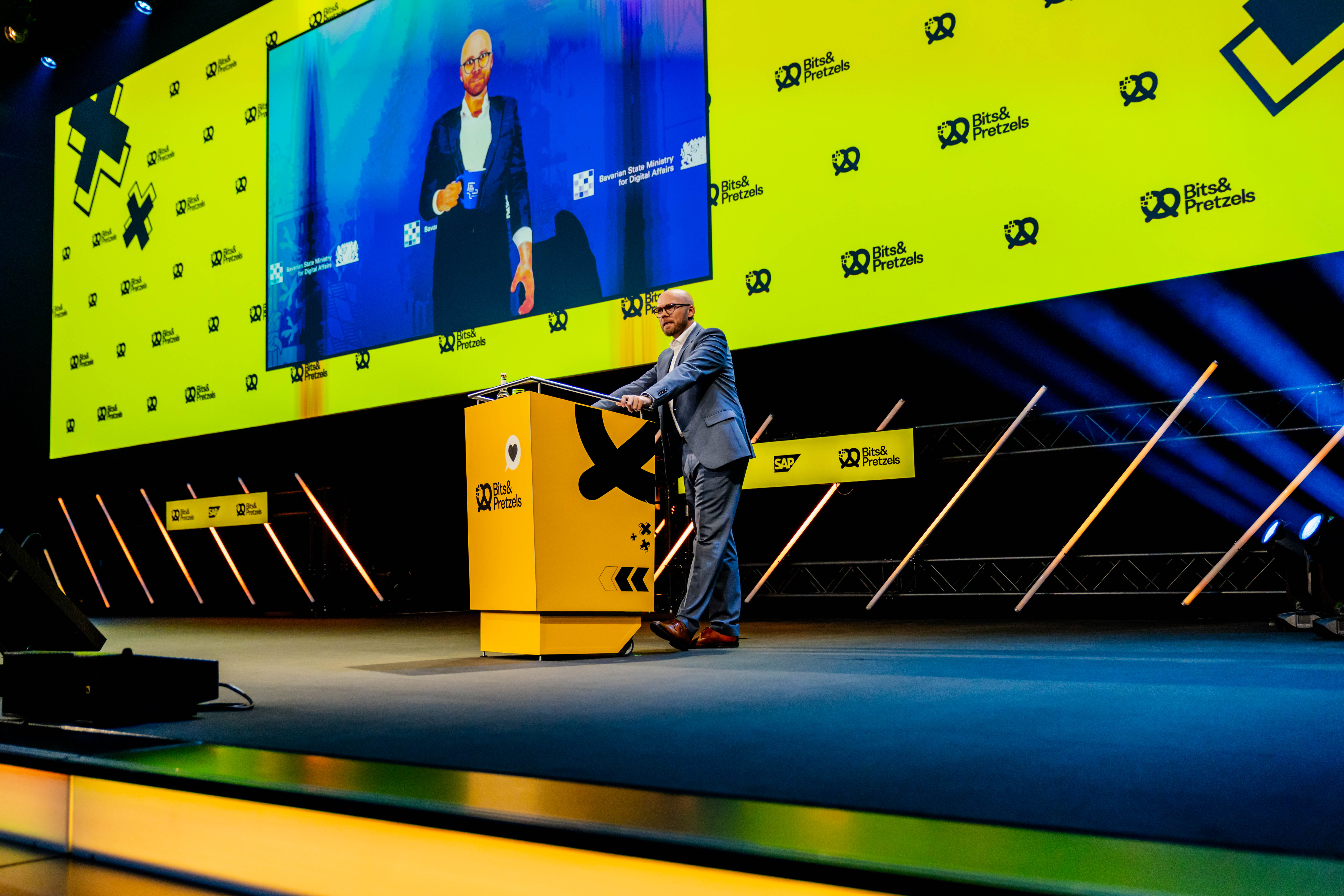
Presentation of Minister Dr. Fabian Mehrings avatar during bits and pretzels
10 Oct 2024
More

The Summer EXPO 2024 for HCI/HCS, CS and GE was a great success! A large number of visitors were able to experience up to 120 different demos and projects.
19 Jul 2024
More
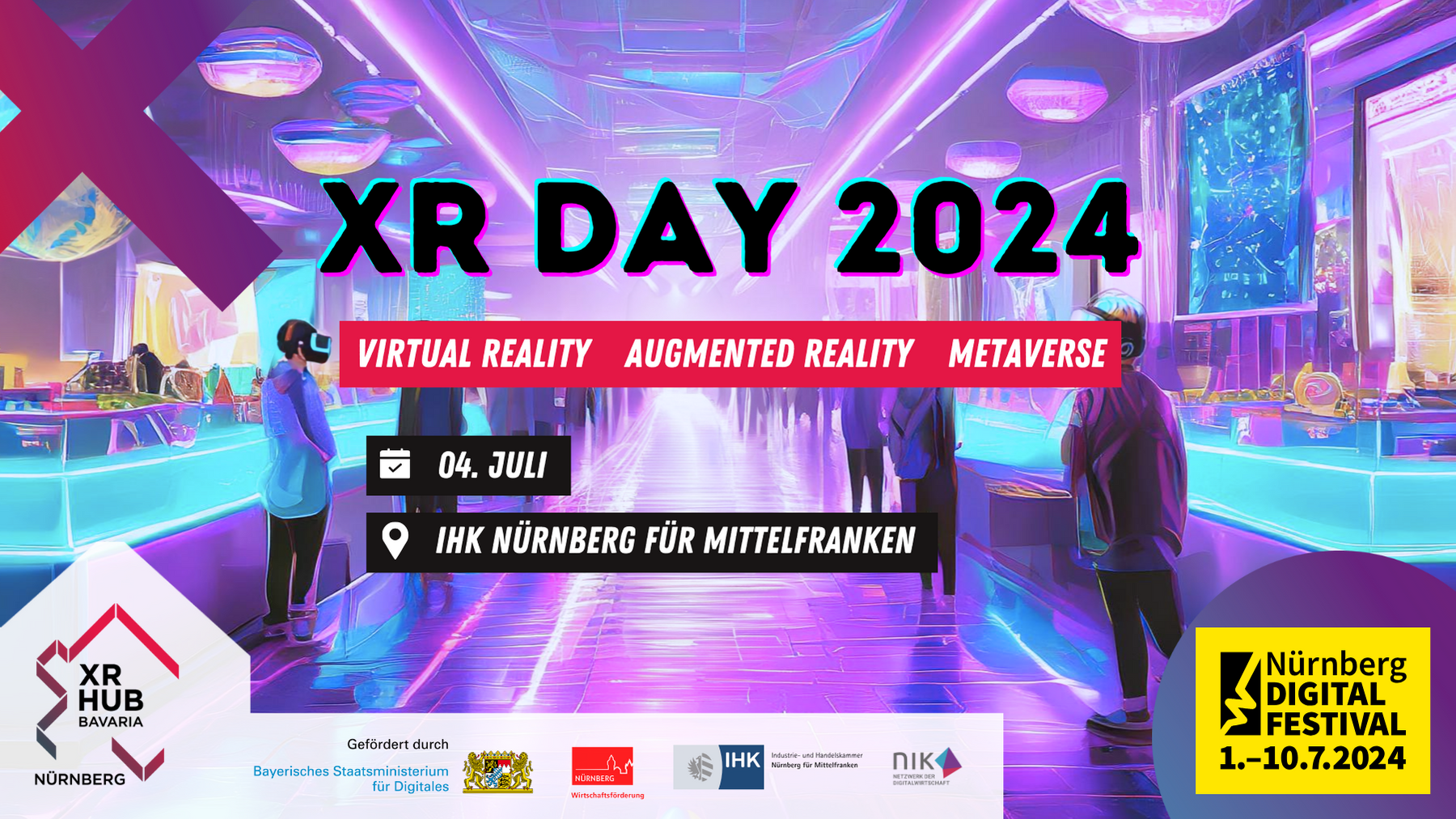
On July 04th, 2024, the XR Hub Würzburg will be present at the XR Day in Nuremberg, showcasing as an exhibitor from 14:30 onwards. Join us to witness the latest XR advancements and immerse yourself in the future of technology!
04 Jul 2024
Go to website
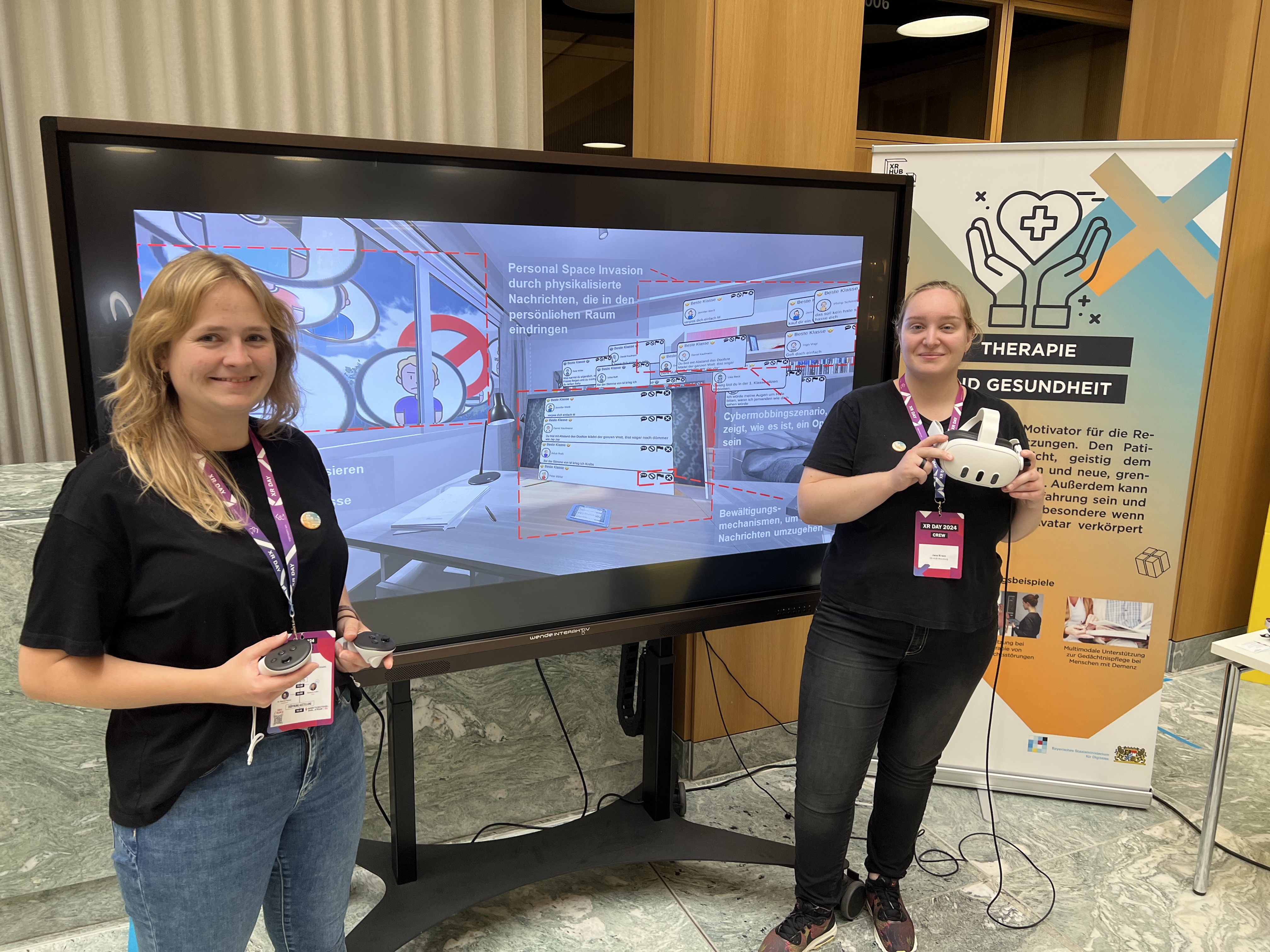
The XR Hub participated in the XR Day at July, 4th 2024 at the IHK building in Nuremberg.
04 Jul 2024
More

This year's summer expo is on the 19th of July 2024. Feel free to visit and experience a lot of interesting projects.
18 Jun 2024
More

We presented the HiAvA project at the Transforming Media event
10 Jun 2024
More
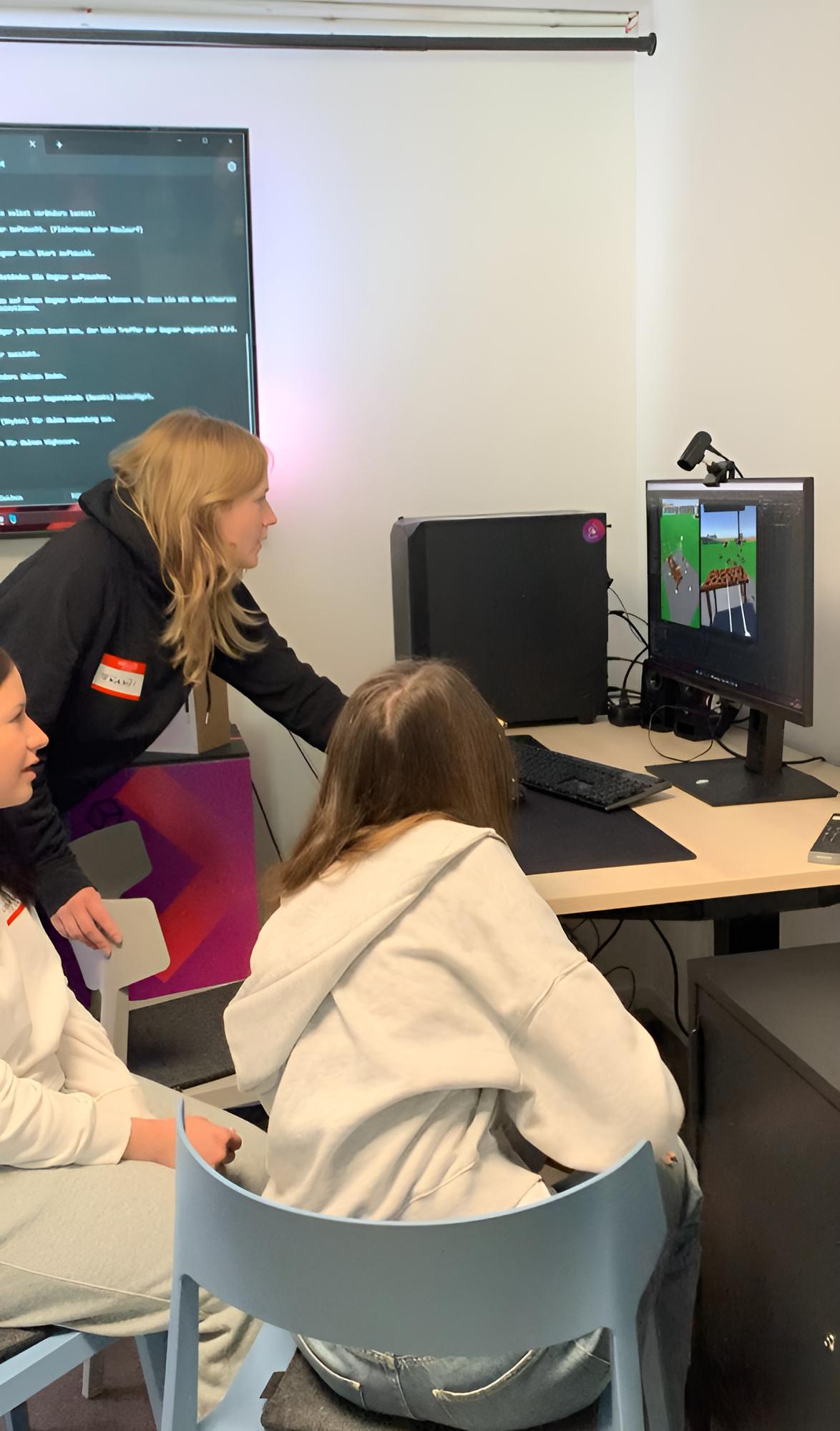
The Girls' Day took place on April 25th, 2024, and was a great success! Together with the XR Hum Nuremberg we conducted parallel workshops where the girls got familiar with XR technologies and learned about the background of designing XR experiences.
25 Apr 2024
More
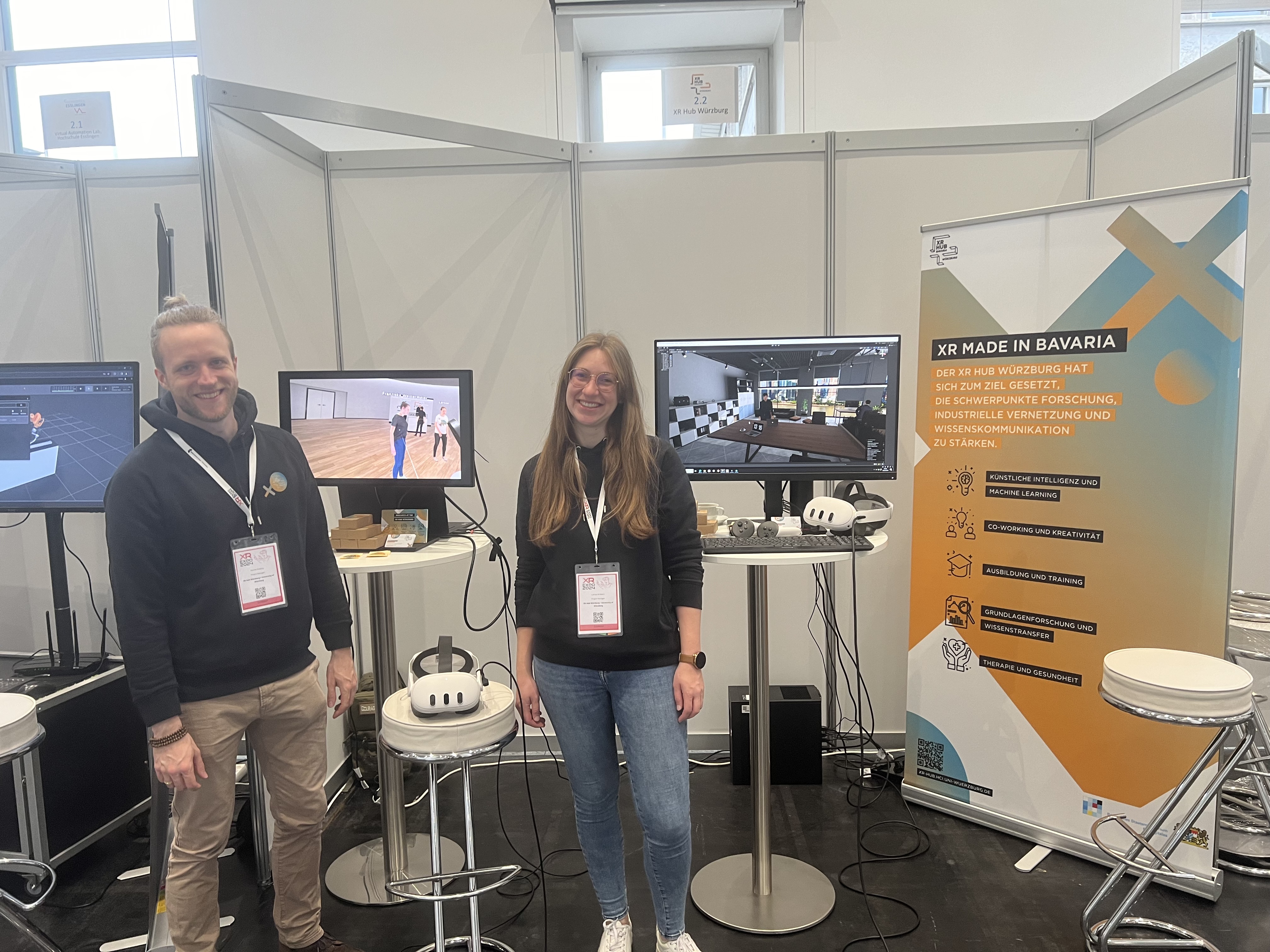
The XR Hub Würzburg and HiAvA attended the XR Expo in Stuttgart, where they made valuable connections with attendees from academia and industry.
04 Apr 2024
More
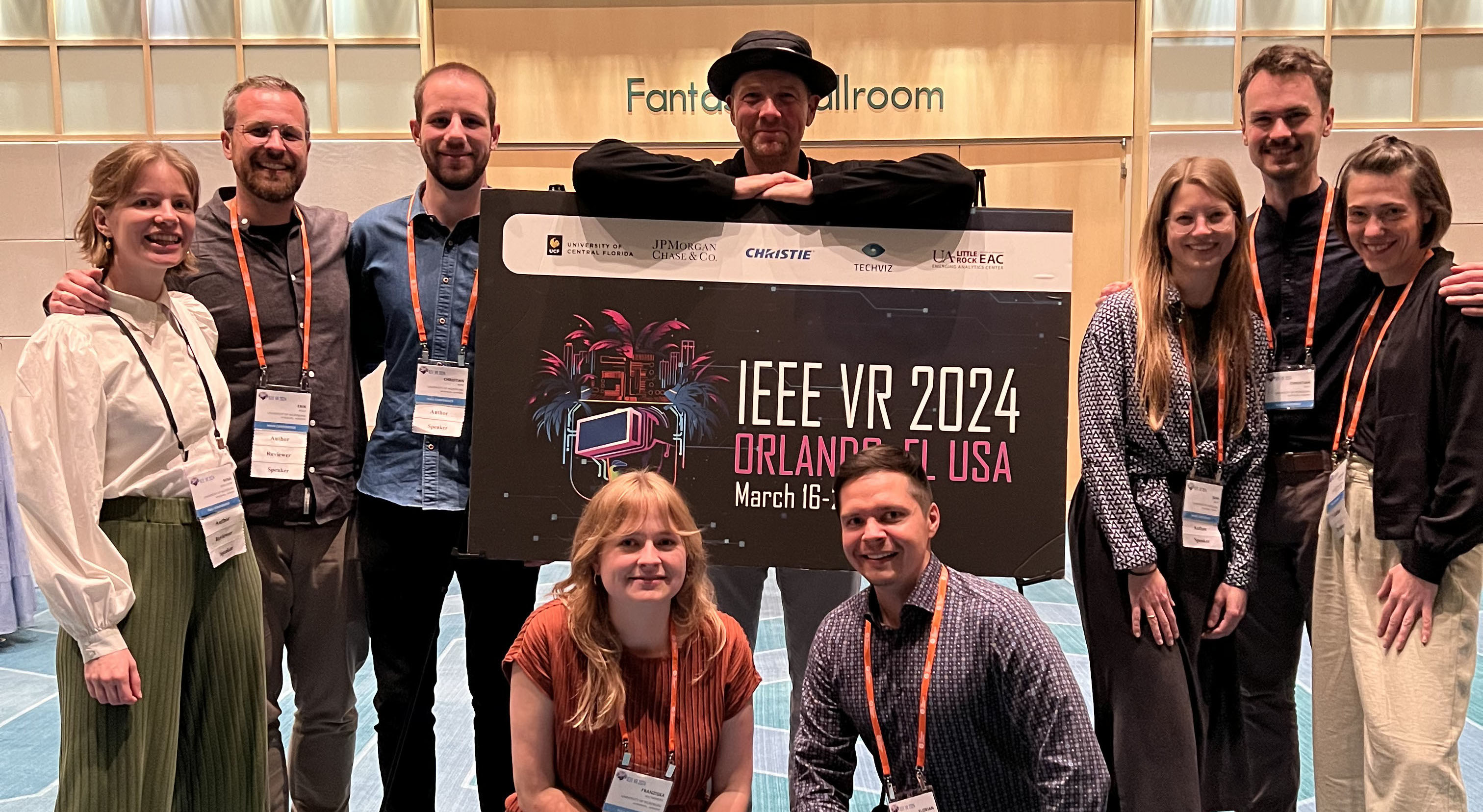
HCI, PIIS and PsyErgo their works at the IEEE VR 24 Conference in Orlando, Florida
21 Mar 2024
More
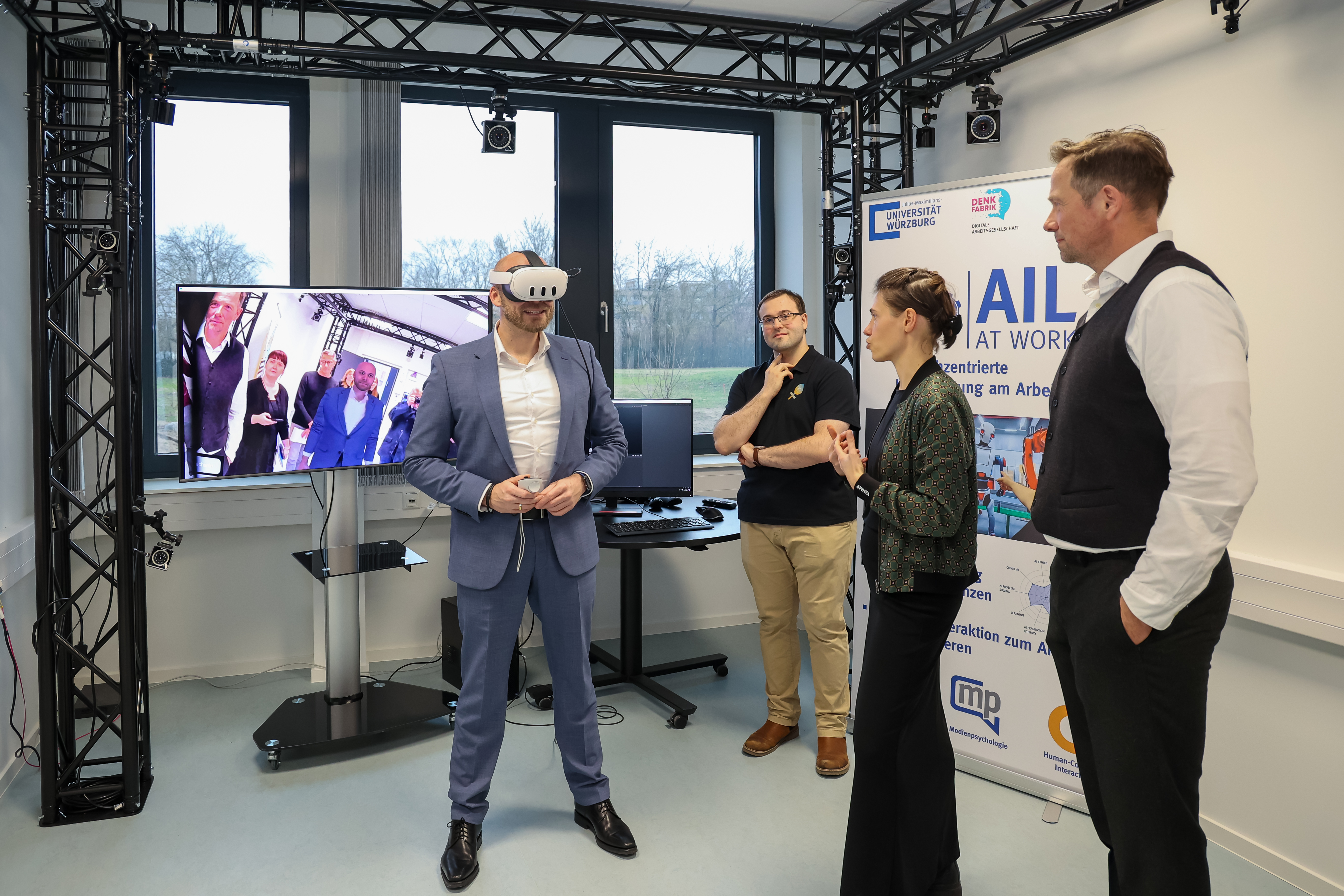
Bavaria's new Minister of Digital Affairs Dr. Fabian Mehring visited the University of Würzburg for the first time. He was visibly impressed by the projects and achievements of the XR Hub.
11 Mar 2024
More
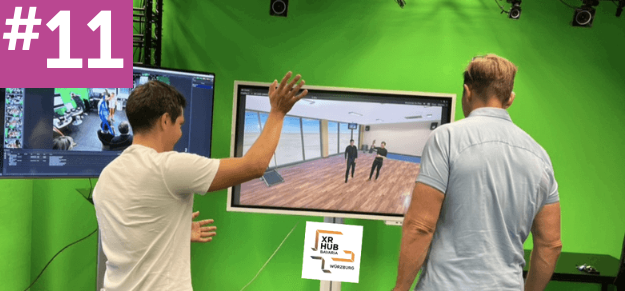
In a recent appearance on the podcast 'Arbeit, Bildung, Zukunft,' Prof. Dr. Marc Erich Latoschik delved into the metaverse and its intersection with artificial intelligence. For a comprehensive exploration of these topics, tune in to the podcast on the 'Arbeit, Bildung, Zukunft' website.
25 Jan 2024
Go to website

Save-the-date: The winter Expo will take place on the 9th February!
11 Jan 2024
More
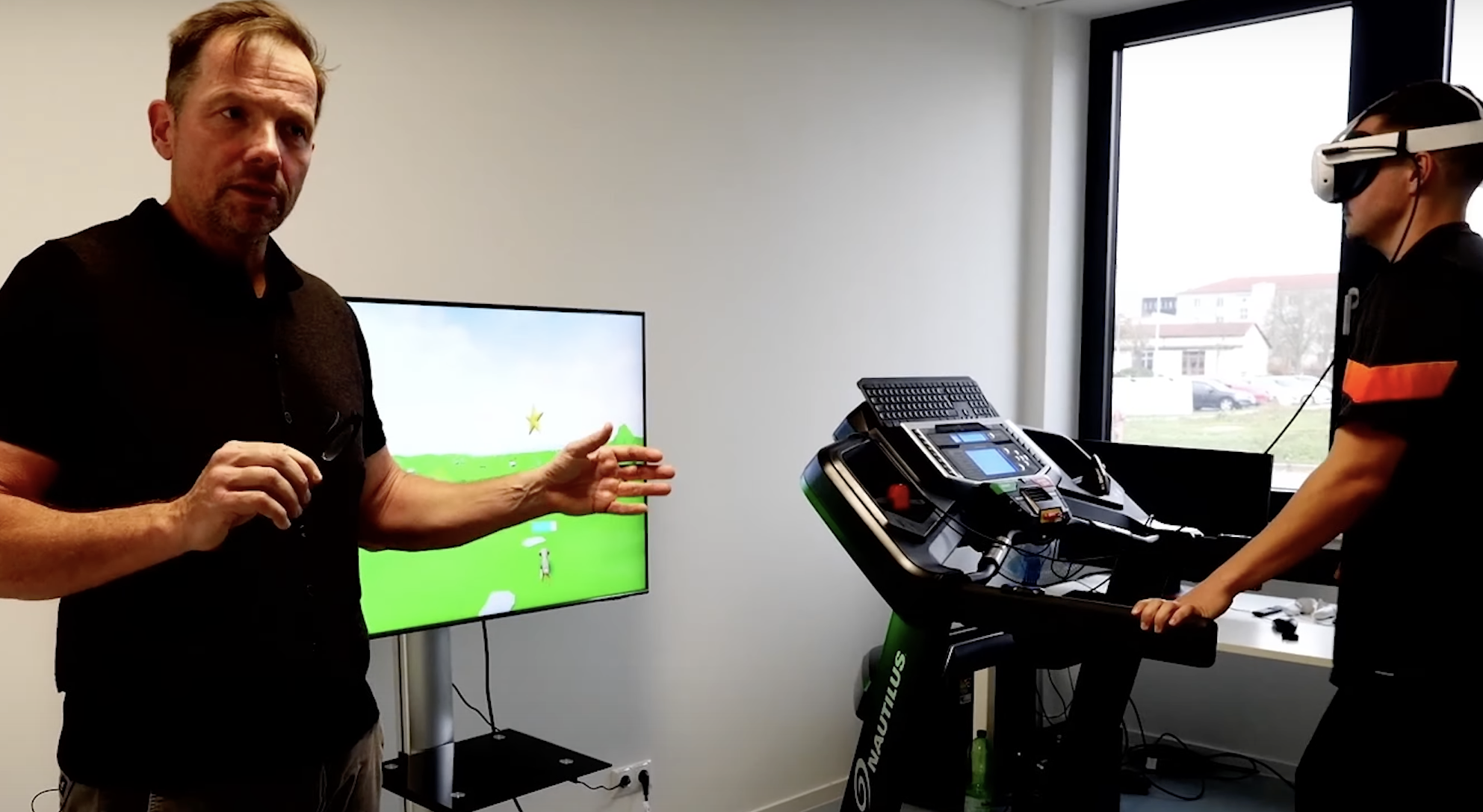
On November 14th, 2023, the XR Hub presented at this online event.
08 Jan 2024
More
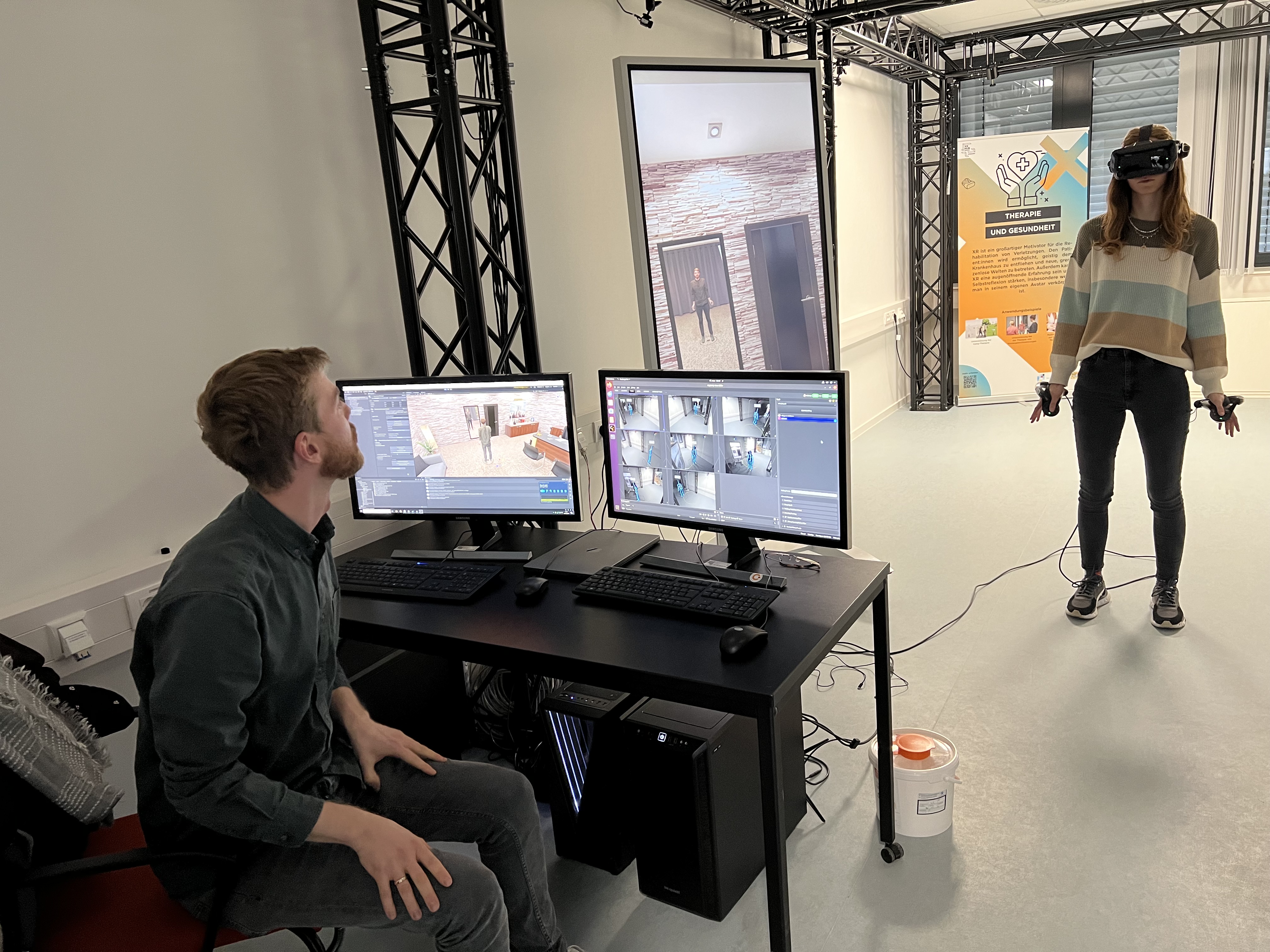
The XR Hub participated in WueWW on Friday, November 17th, 2023, offering insights into the field of extended reality and showcasing its diverse applications.
20 Nov 2023
More

The XR-Hub Würzburg will join the Wuerzburg Web Week 2022 on 17th November! Make sure to be there to listen to our talk and try out our demonstrations."
03 Nov 2023
Go to website
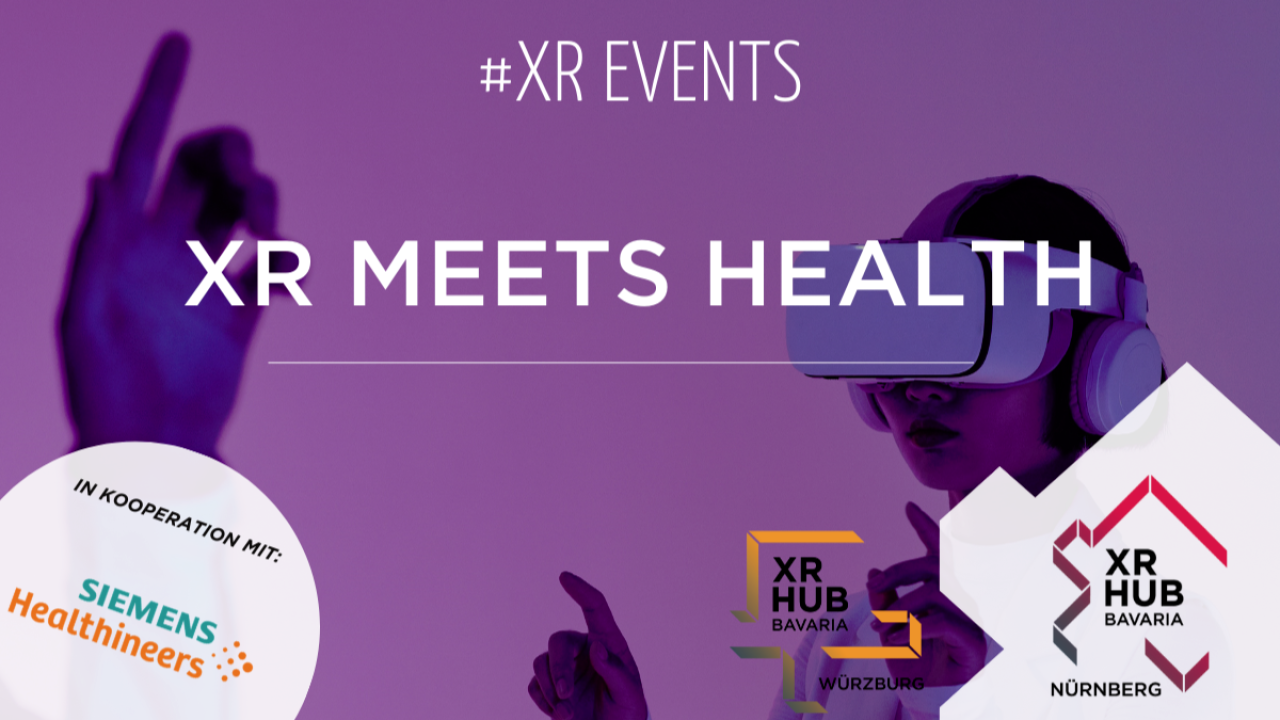
On November 14th, 2023 the XR Hub will be presenting at this online event
25 Oct 2023
More
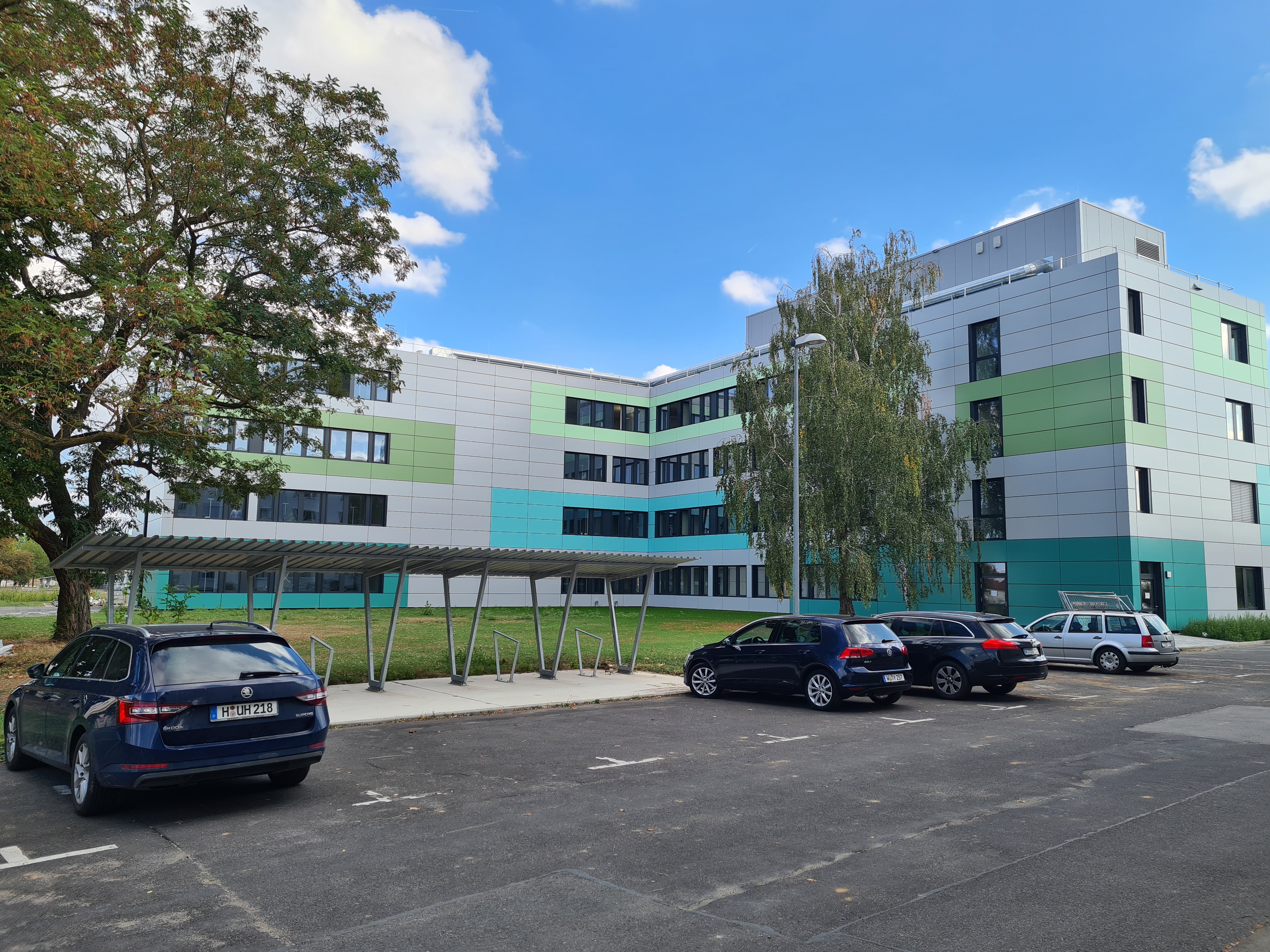
We can now be found in the Emil-Fischer-Straße 50 in Hubland North.
13 Sep 2023
More
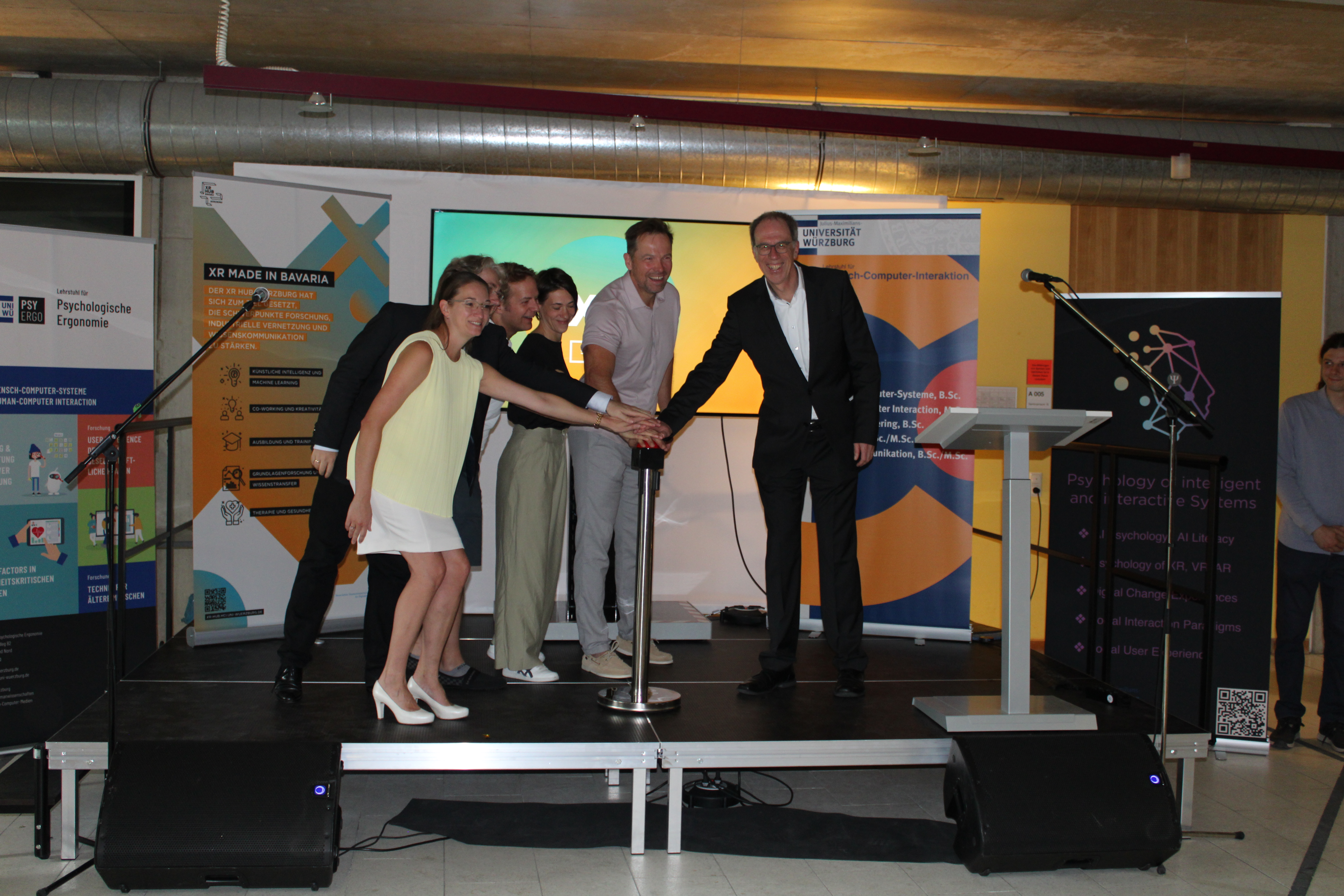
The Summer EXPO 2023 for MCS/HCI, MK and GE was a great success! A large number of visitors were able to experience up to 120 different demos and projects.
24 Jul 2023
More

Are you interested in Games, Virtual Reality, Human-Computer Interaction, and Science? Then this will be the right event for you!
18 Jul 2023
More
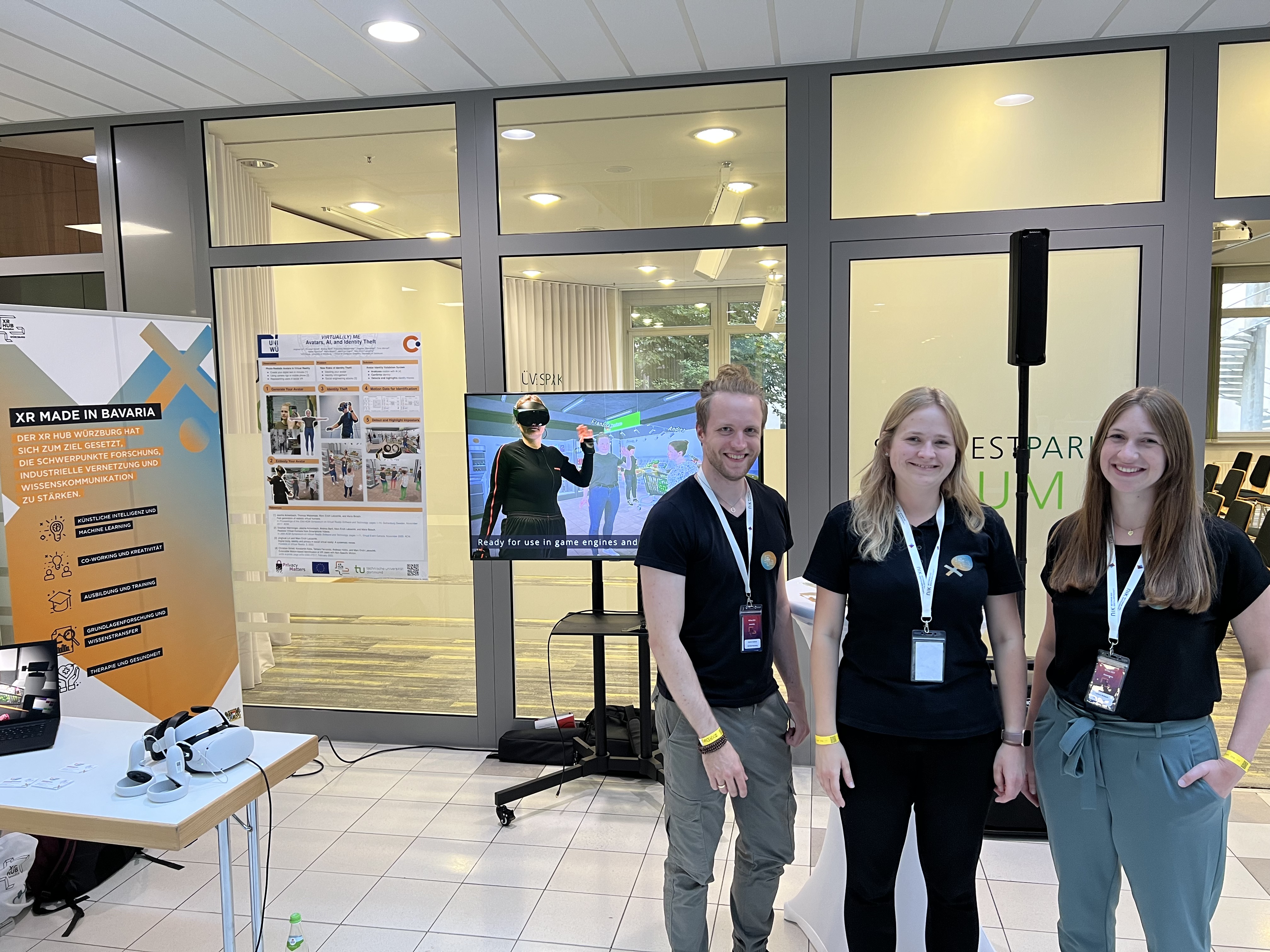
On July 6th, the XR Hub visited the XR Day in Nuremberg in order to showcase the demo 'Virtually Me' and to exchange ideas with XR experts from different fields.
12 Jul 2023
More
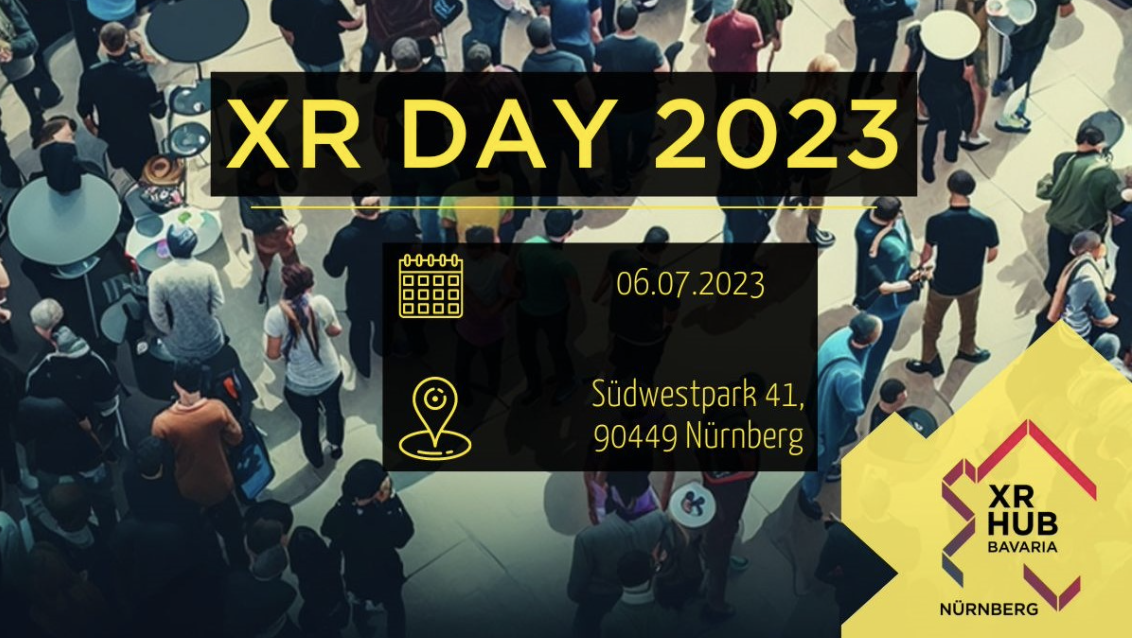
On July 6th, 2023, the XR Hub Würzburg will be present at the XR Day in Nuremberg, showcasing as an exhibitor from 16:45 onwards. Join us to witness the latest XR advancements and immerse yourself in the future of technology!
28 Jun 2023
Go to website
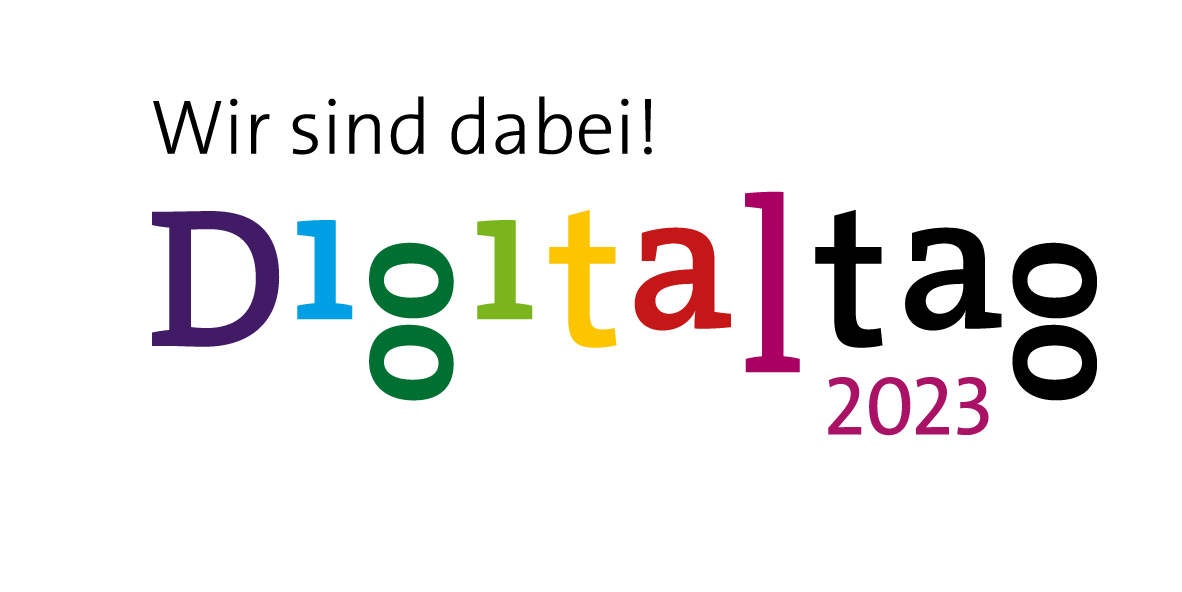
On June 16th at 1pm the XR Hub Würzburg hosts the event 'Dive into XR' for the Digitaltag 2023. Among other things, visitors will have the opportunity to experience different tracking solutions in the newly established motion capture lab.
24 May 2023
Go to website
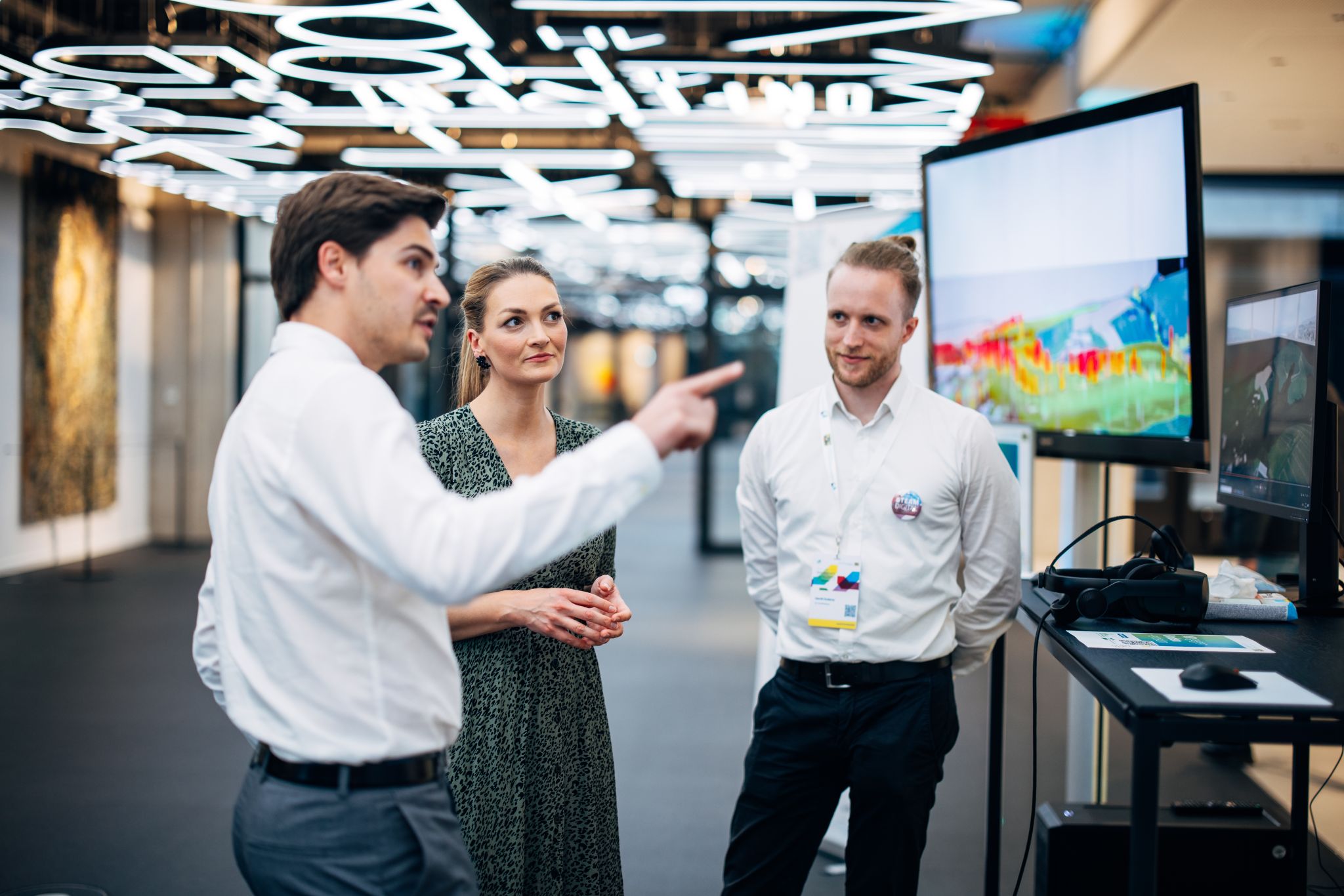
As part of the project 'XR versus soil erosion', the XR-Hub visited the Bayerische Digitalgipfel in Munich.
23 May 2023
More
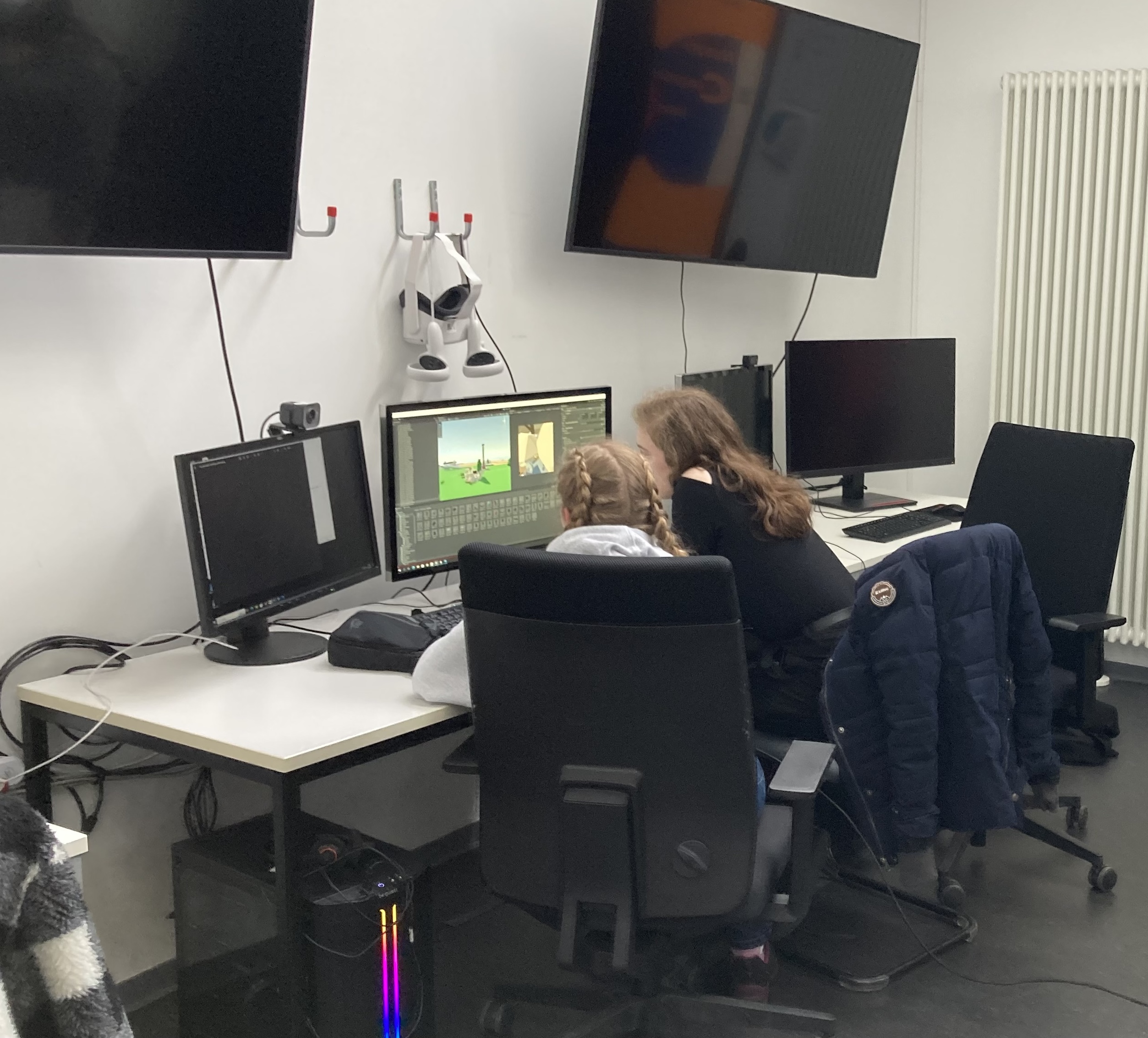
The Girls' Day took place on April 27th, 2023, and was a great success!Together with the XR Hum Nuremberg we conducted parallel workshops where the girls got familiar with XR technologies and learned about the background of designing XR experiences.
10 May 2023
More

Wuertual Reality, a premiere conference in the field of XR was held last week right here in Würzburg.
17 Apr 2023
More

The 30th IEEE Conference on Virtual Reality and 3D User Interfaces (IEEEVR 2023) was a great success.
13 Apr 2023
More
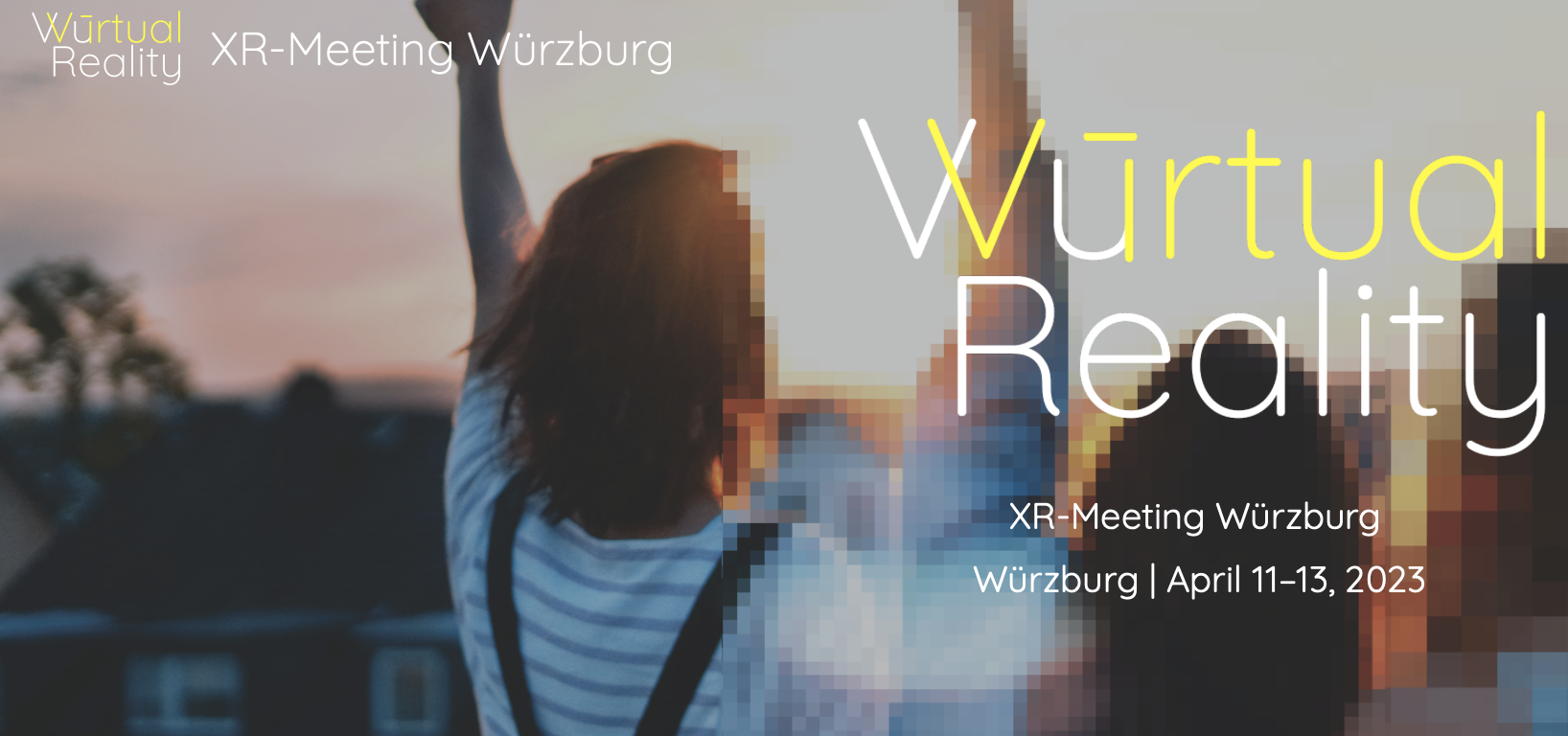
From April 11th to 13th, the Würtual Reality XR Meeting 2023 will take place at the University of Würzburg, Germany. The HCI Chair offers various demonstrations as well as talks on current research issues for the participants.
07 Mar 2023
More
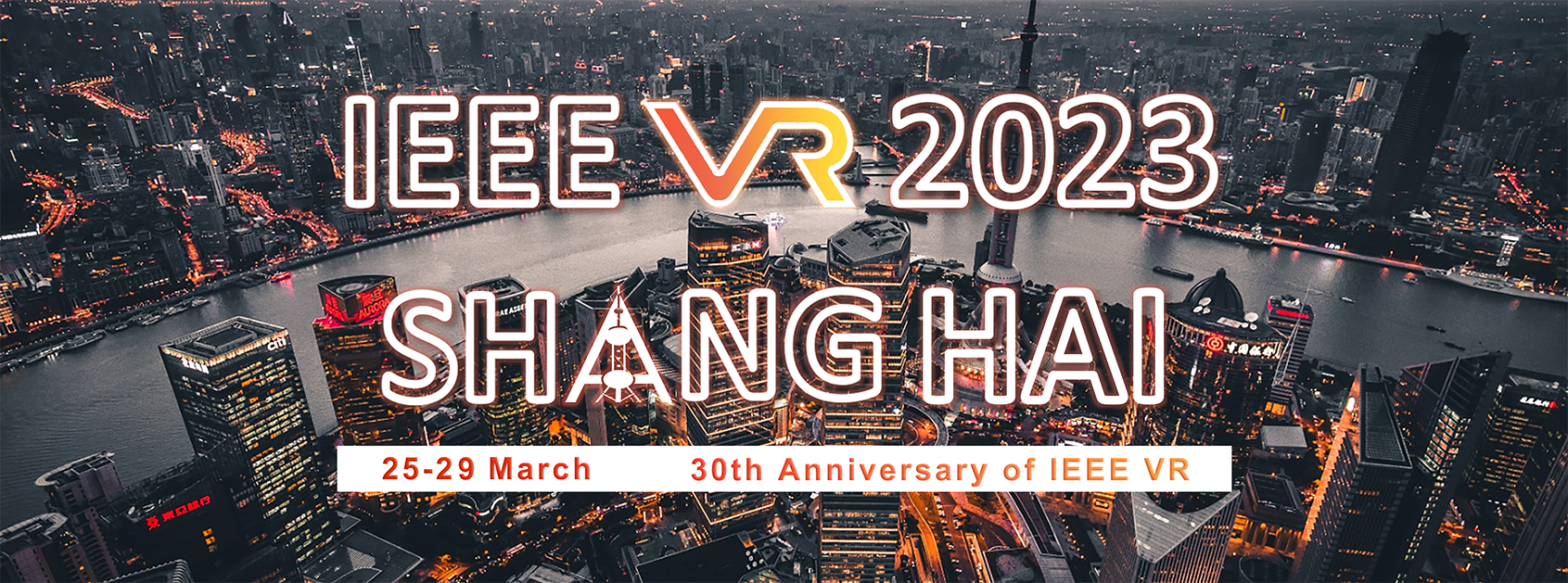
We are very pleased to present our research at this year's IEEE VR.
02 Mar 2023
More
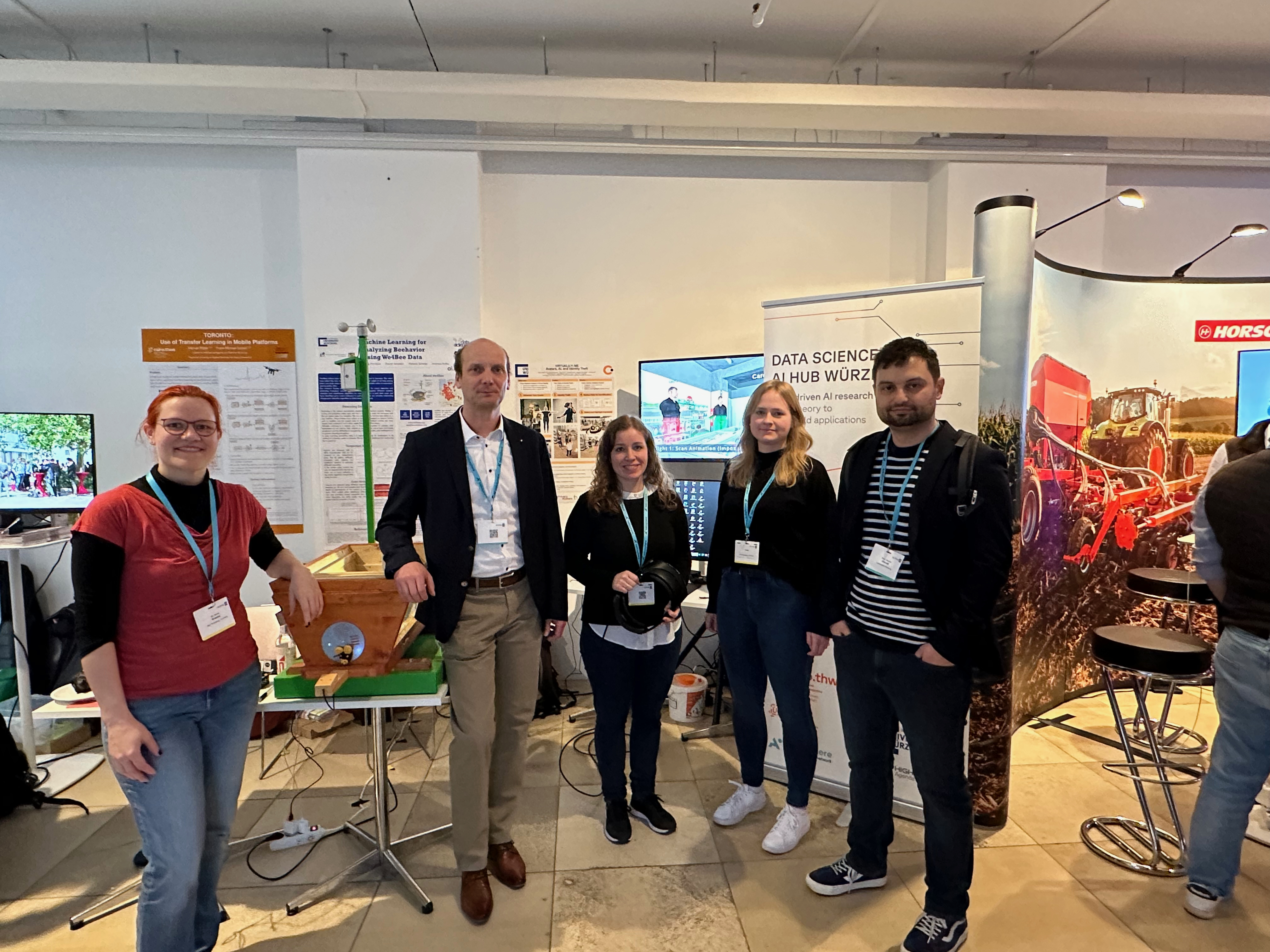
On the 23rd and 24th of February we visited the AI.BAY 2023 in Munich on order to support the CAIDAS and to showcase two of our current projects together with the Center for Artificial Intelligence and Robotics (CAIRO).
27 Feb 2023
More
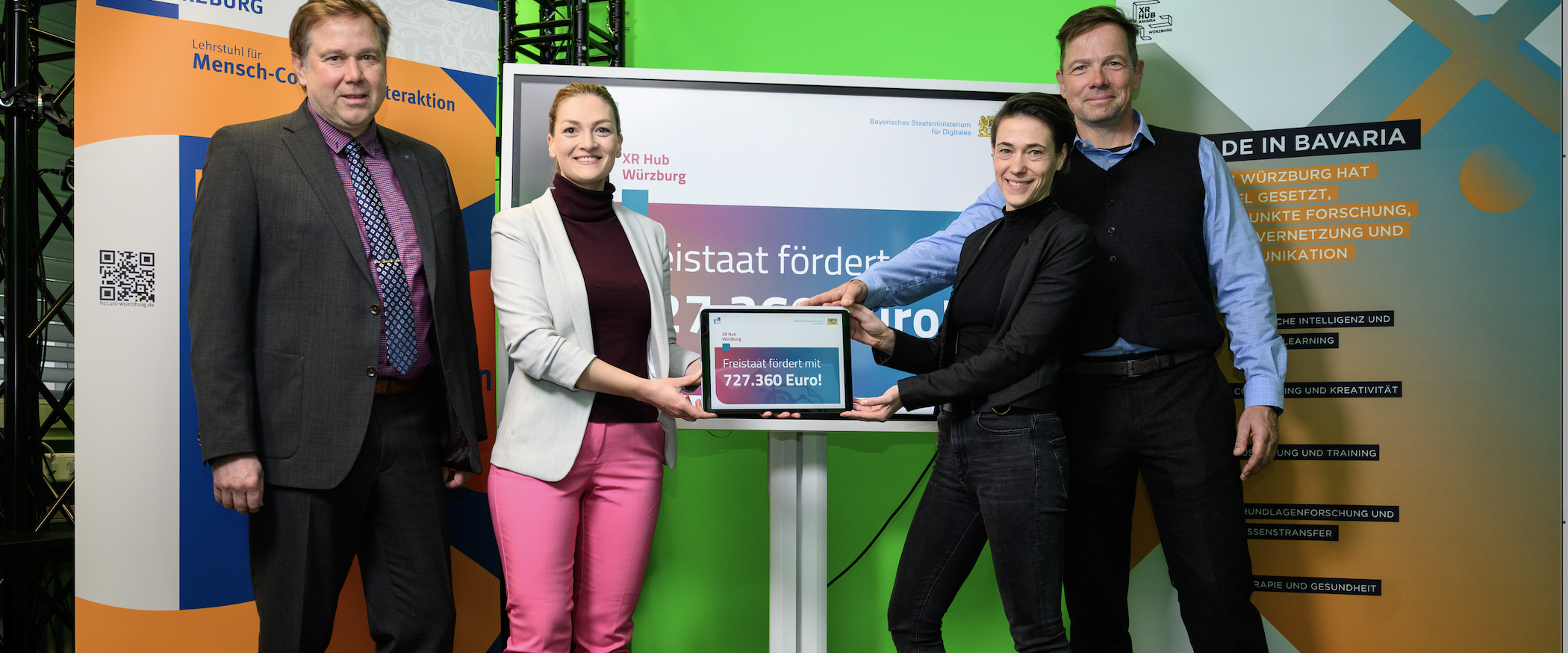
The Free State of Bavaria supports the XR Hub Würzburg with 730,000 € for another two years. Digital Minister Judith Gerlach handed over the funding certificate to the XR Hub Würzburg.
17 Feb 2023
More
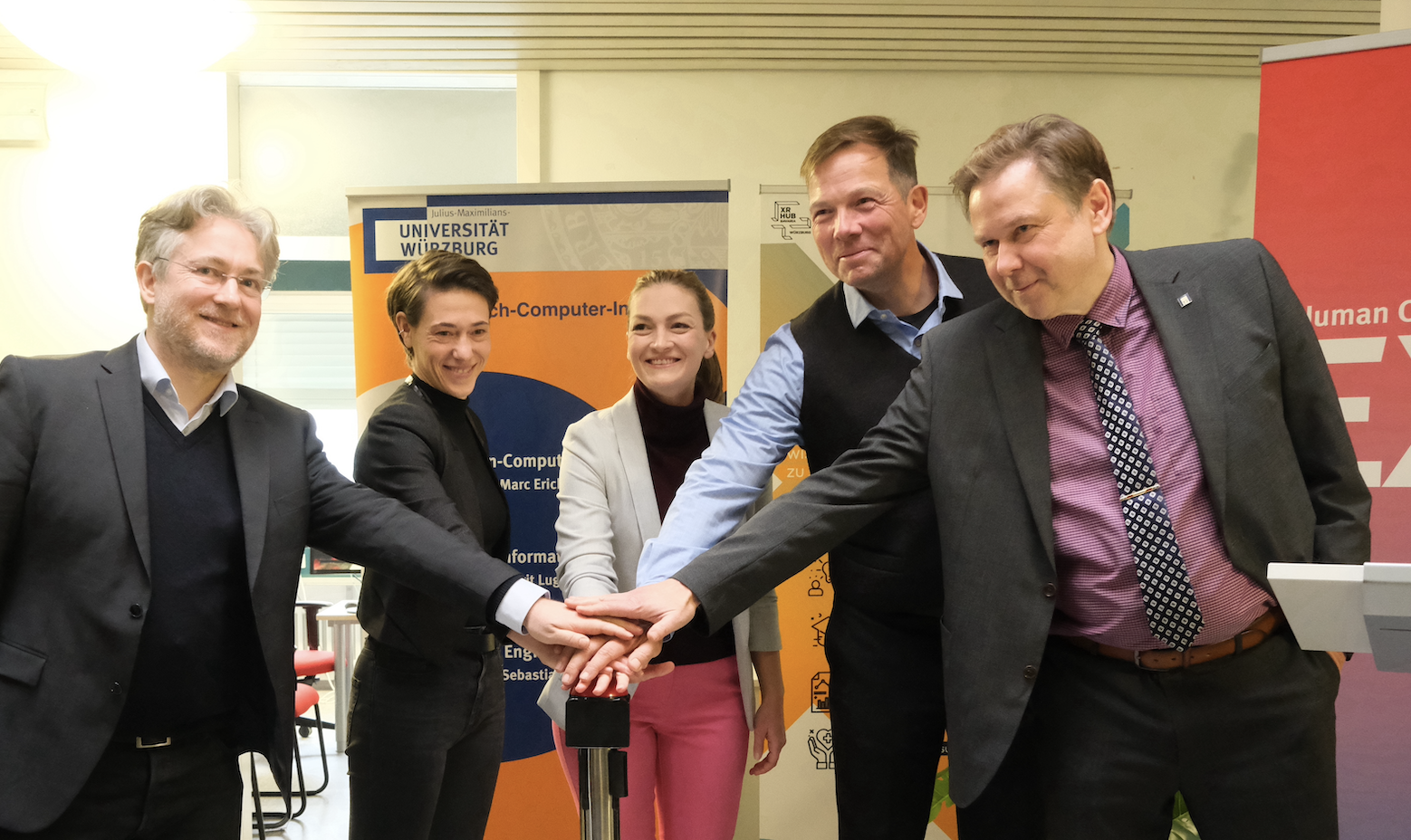
The Winter EXPO 2023 for MCS and HCI was a great success! We thank all the contributors and guests for participating.
14 Feb 2023
More

Save-the-date: The winter Expo will take place on the 10th February!
09 Jan 2023
More
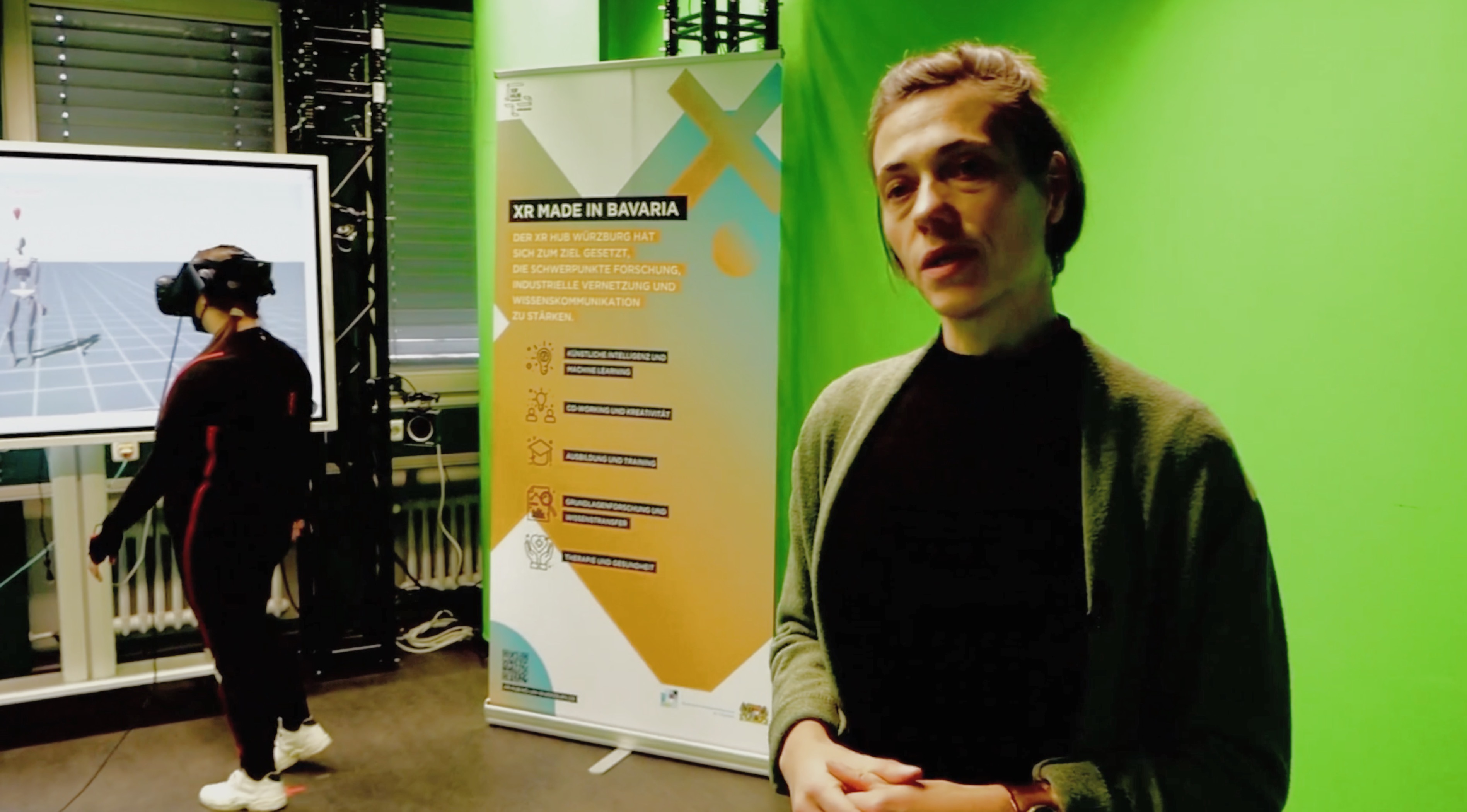
Together with the XR HUB Nuremberg and Labs Network Industrie 4.0 e.V. we organized the online event "XR MEETS FUTURE WORK".
22 Nov 2022
More
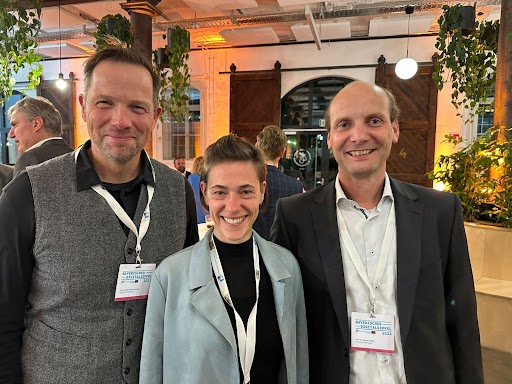
Carolin Wienrich, Marc Latoschik, and Andreas Hotho visited the Bavarian Digital Summit.
21 Nov 2022
More
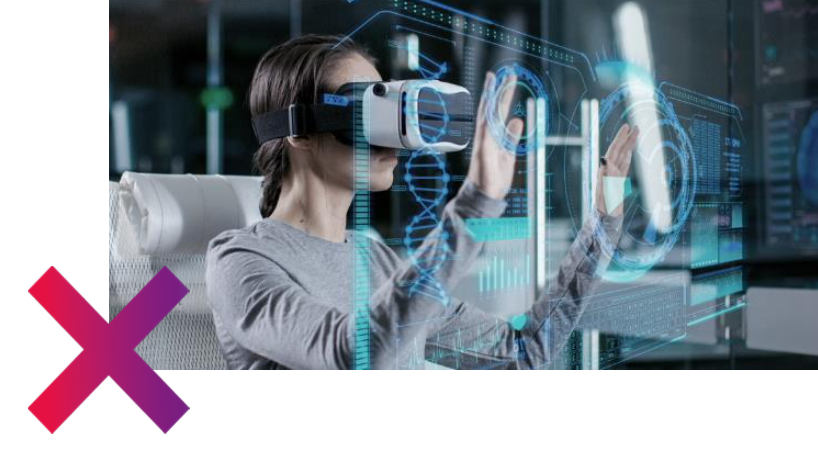
On November 15th 2022, starting at 14:00, the event "XR meets future work" will take place via zoom.
07 Nov 2022
More

We are very honored that we got the chance to present our IEEE VR Journal Paper „Breaking Plausibility Without Breaking Presence - Evidence For The Multi-Layer Nature Of Plausibility“ as one of 12 invited high-impact papers at the IEEE VIS.
06 Nov 2022
More
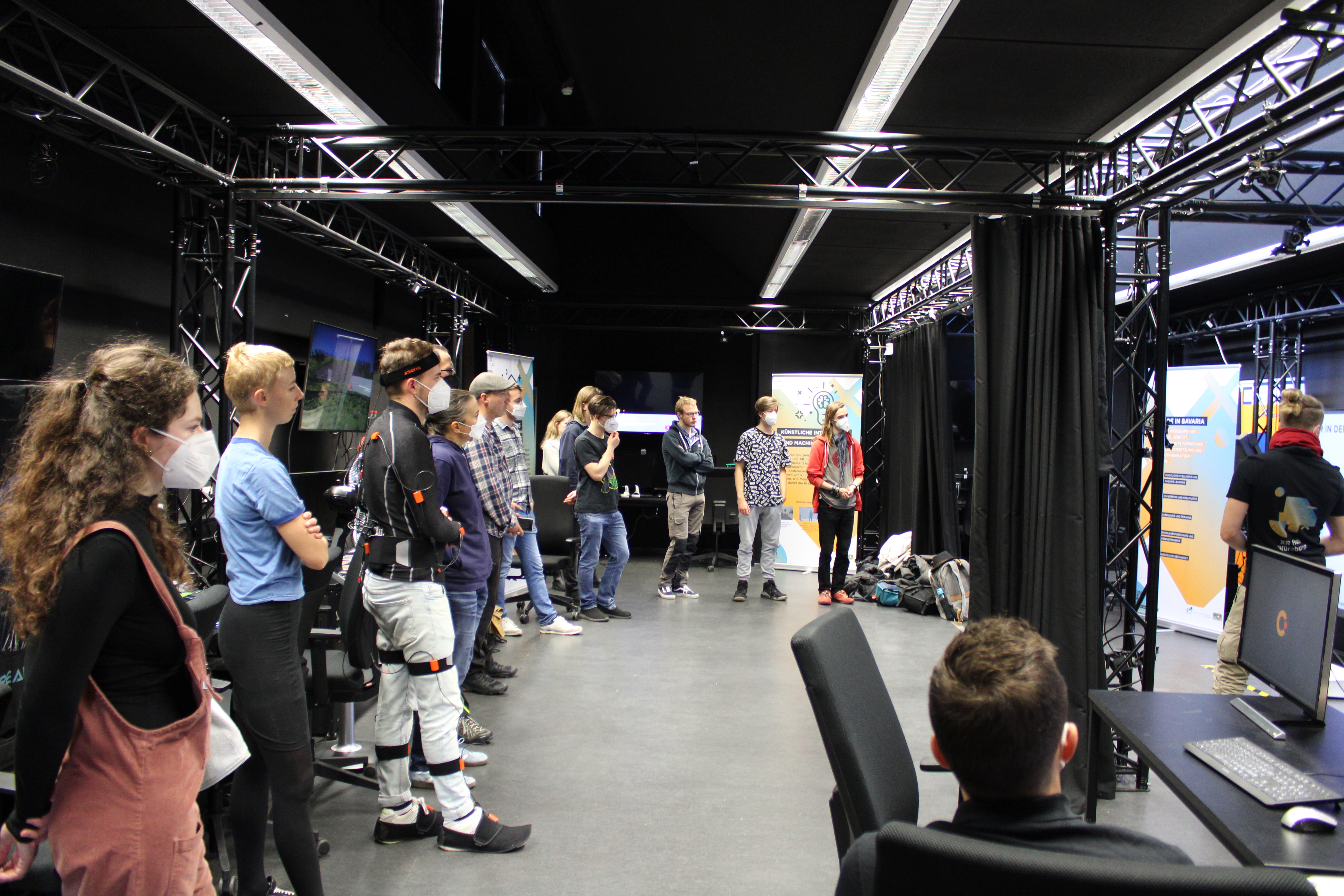
The XR Hub hosted an event for the WueWW on Wednesday, the 26nd of October 2021 to give an insight into the world of extended reality and to showcase potentials and fields of application of XR.
06 Nov 2022
More
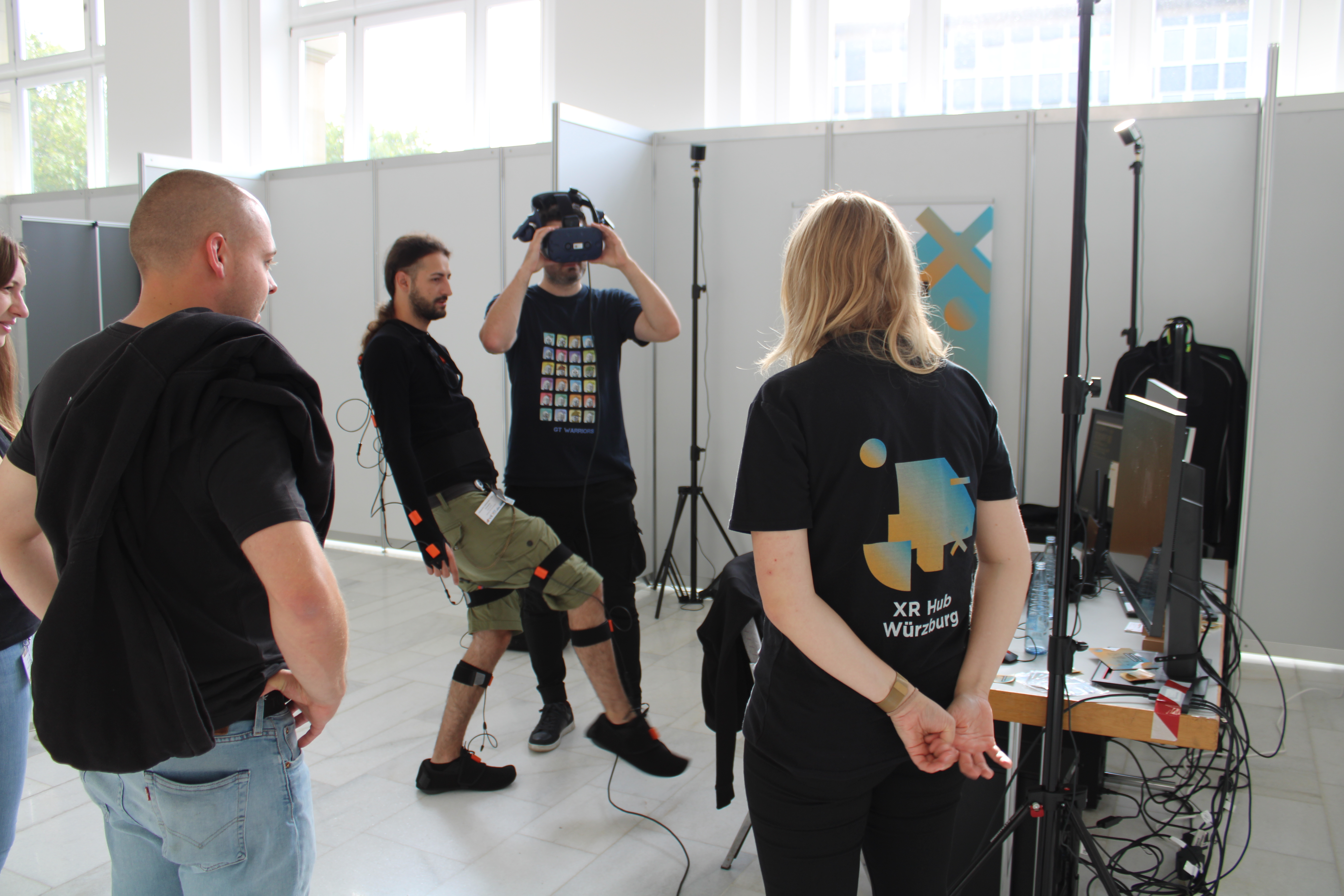
The XR-Hub Würzburg is happy to report 2 sucessful days at the XR Week in Stuttgart .
20 Sep 2022
More
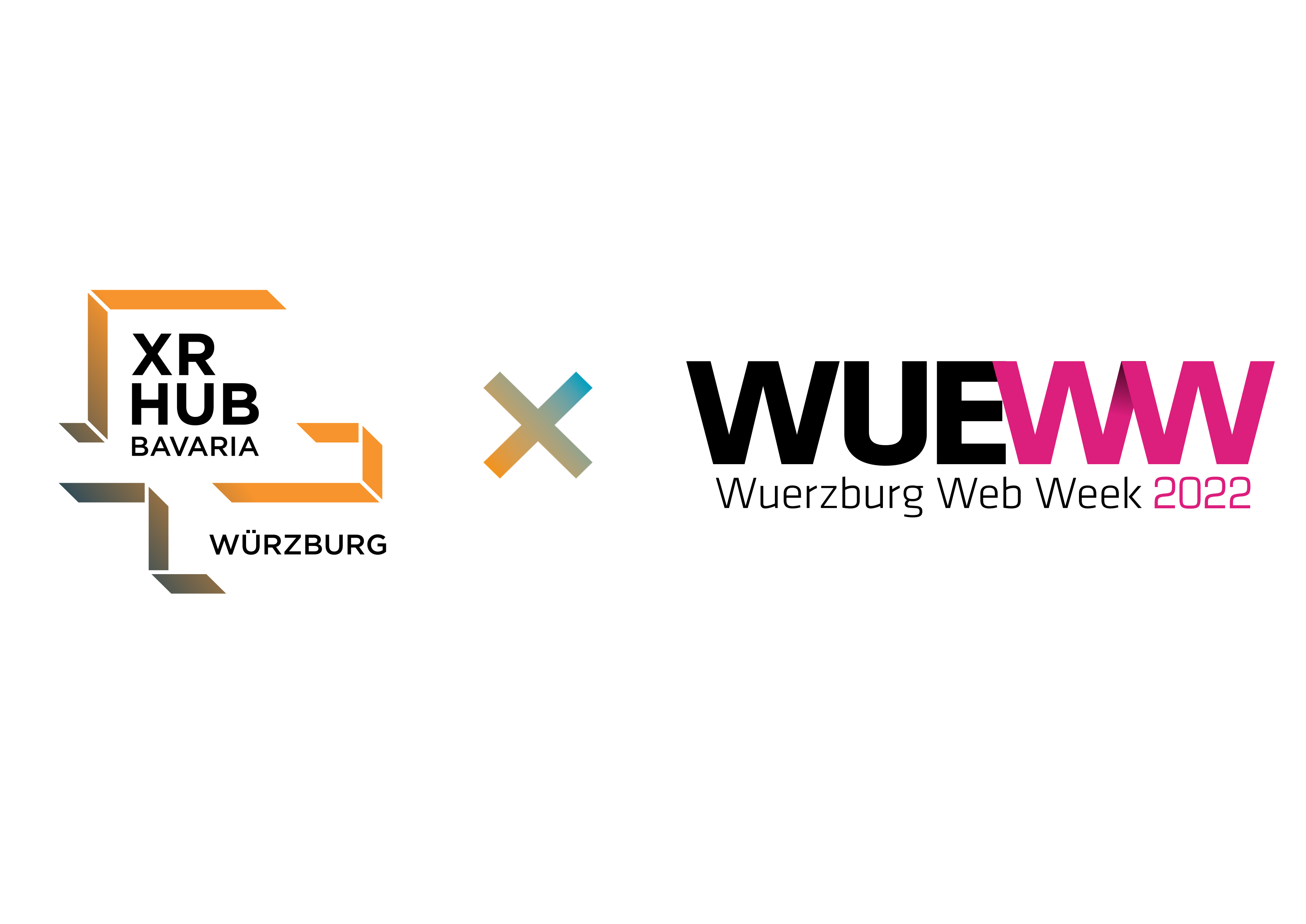
The XR-Hub Würzburg will join the Wuerzburg Web Week 2022 on 26th October! Make sure to be there to listen to our talk and try out our demonstrations.
20 Sep 2022
Go to website
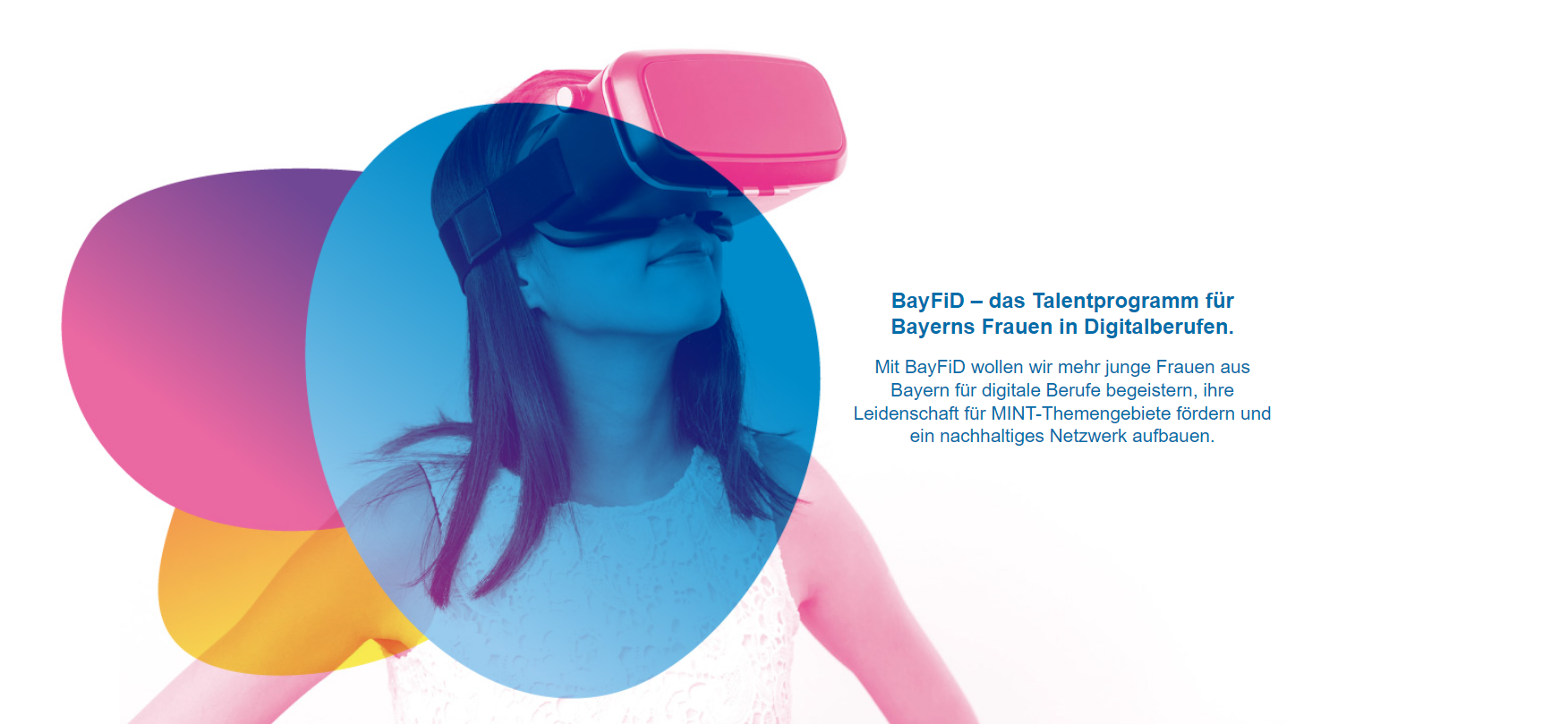
On September 29, 2022, Prof. Latoschik will give a talk on Megatrend XR and the Metaverse at the kick-off Event for the 4th Year of BayFiD.
19 Sep 2022
More

On October 19, 2022, Prof. Latoschik and Prof. Wienrich will speak at "Würzbürger Impulse: Künstliche Intelligenz und Robotik in der Medizin"
19 Sep 2022
More
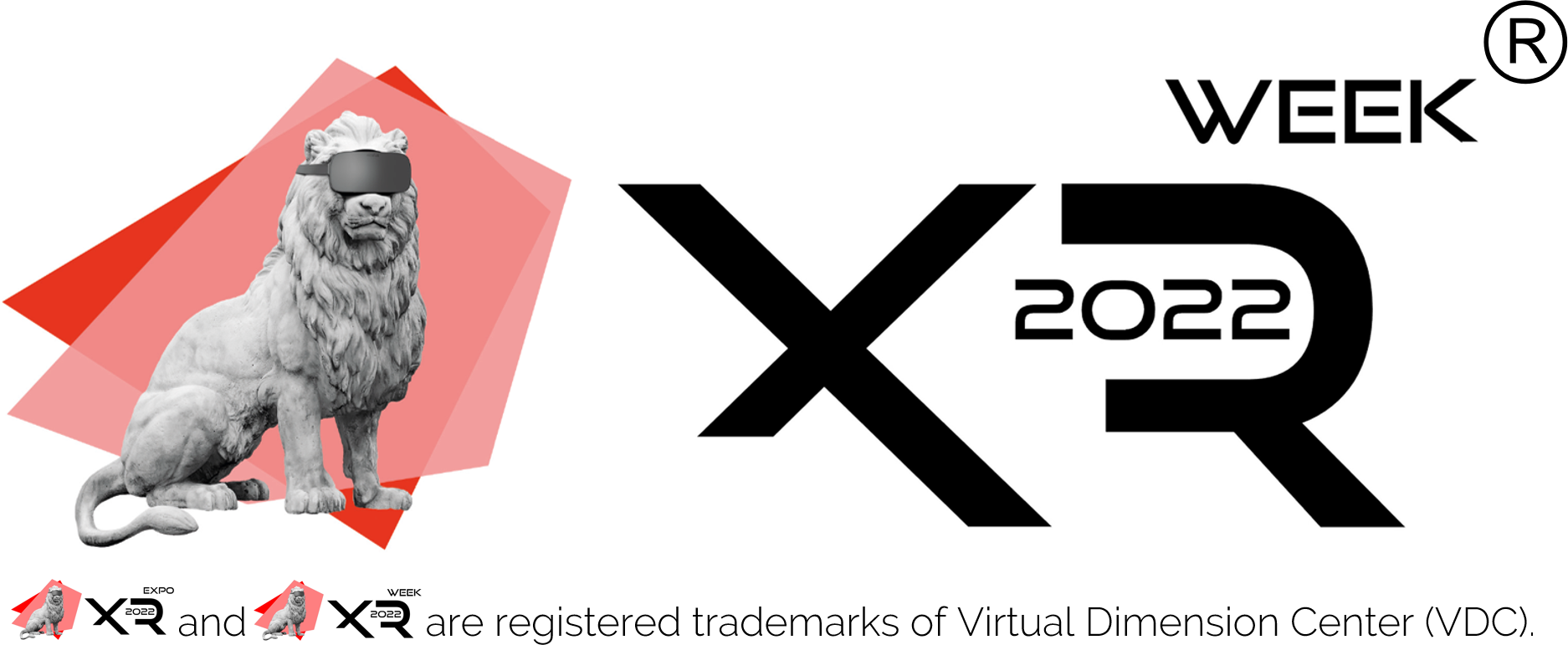
On September 15th and 16th the XR-Hub Würzburg will be part of the XR Week in Stuttgart.
13 Sep 2022
More

The Summer EXPO 2022 for MCS/HCI, MK and GE was a great success! We thank all the contributors and guests for participating.
29 Jul 2022
More
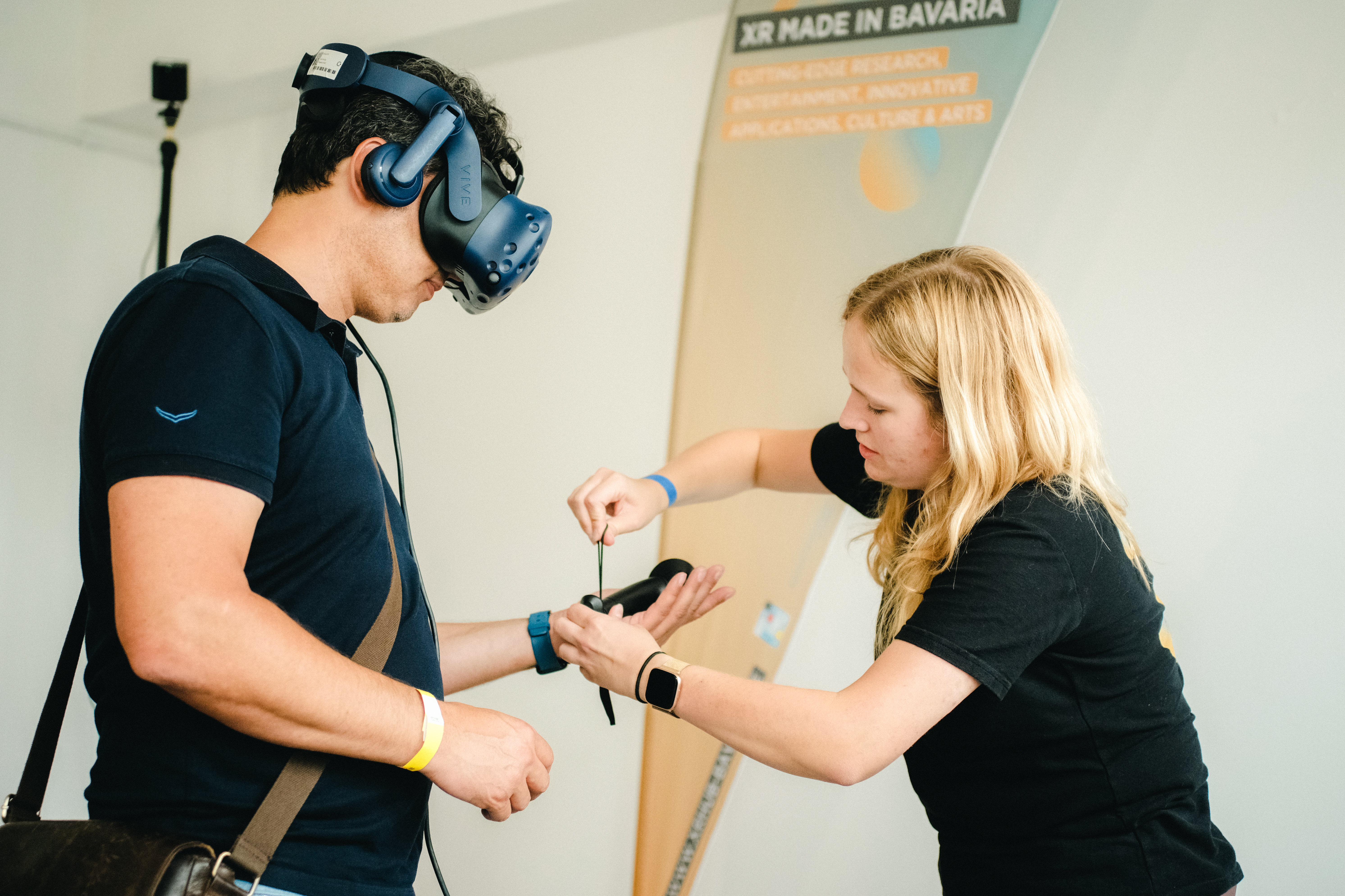
The XR-Hub Würzburg is pleased to report a sucessful day at the XR Day in Nuremberg 7th of July.
07 Jul 2022
More

Summer Expo 2022 will take place on 29th of July 2022.
15 Jun 2022
Go to website
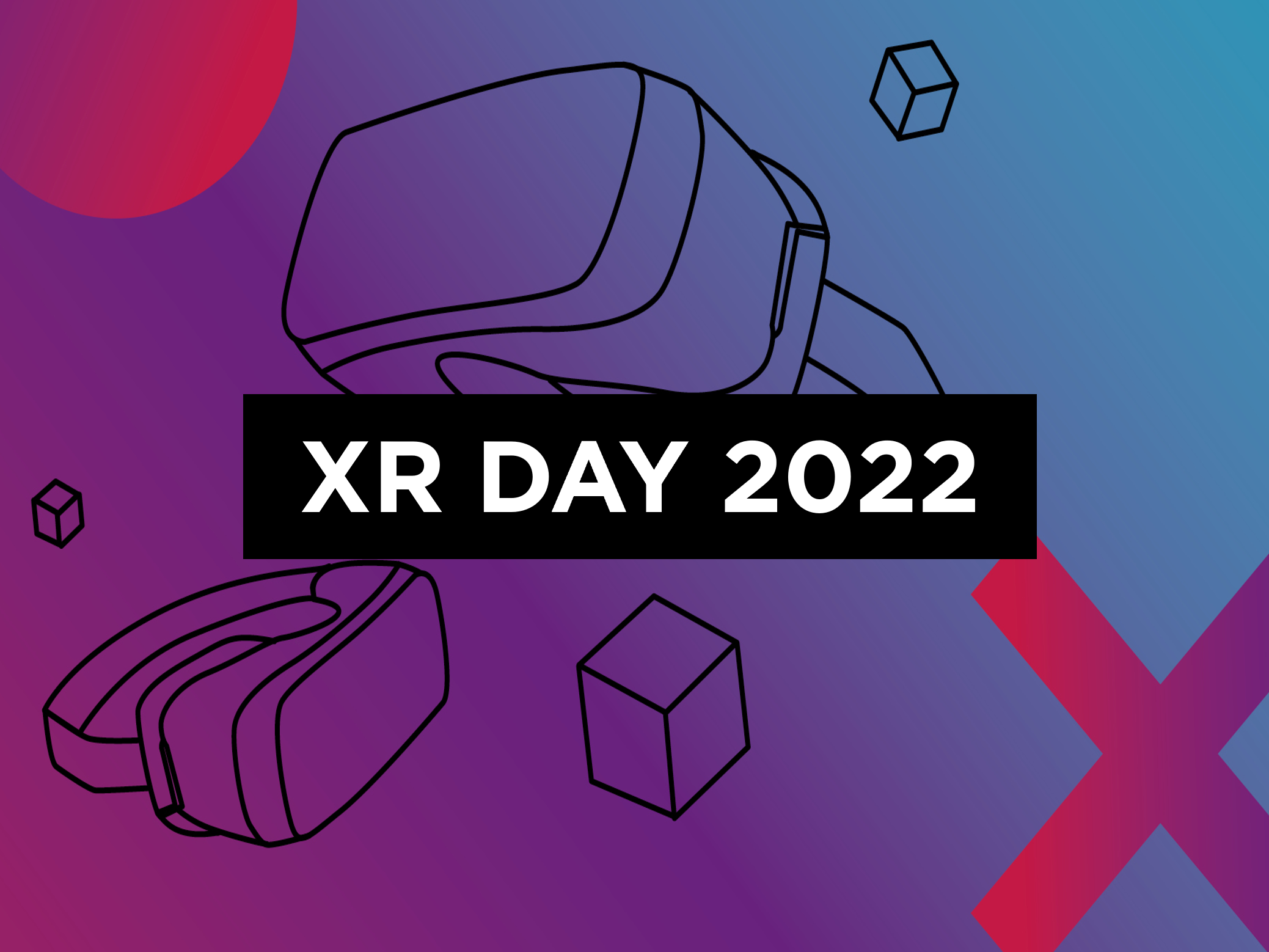
On July 7, 2022, the XR Hub Würzburg will attend the XR Day in Nuremberg.
14 Jun 2022
More
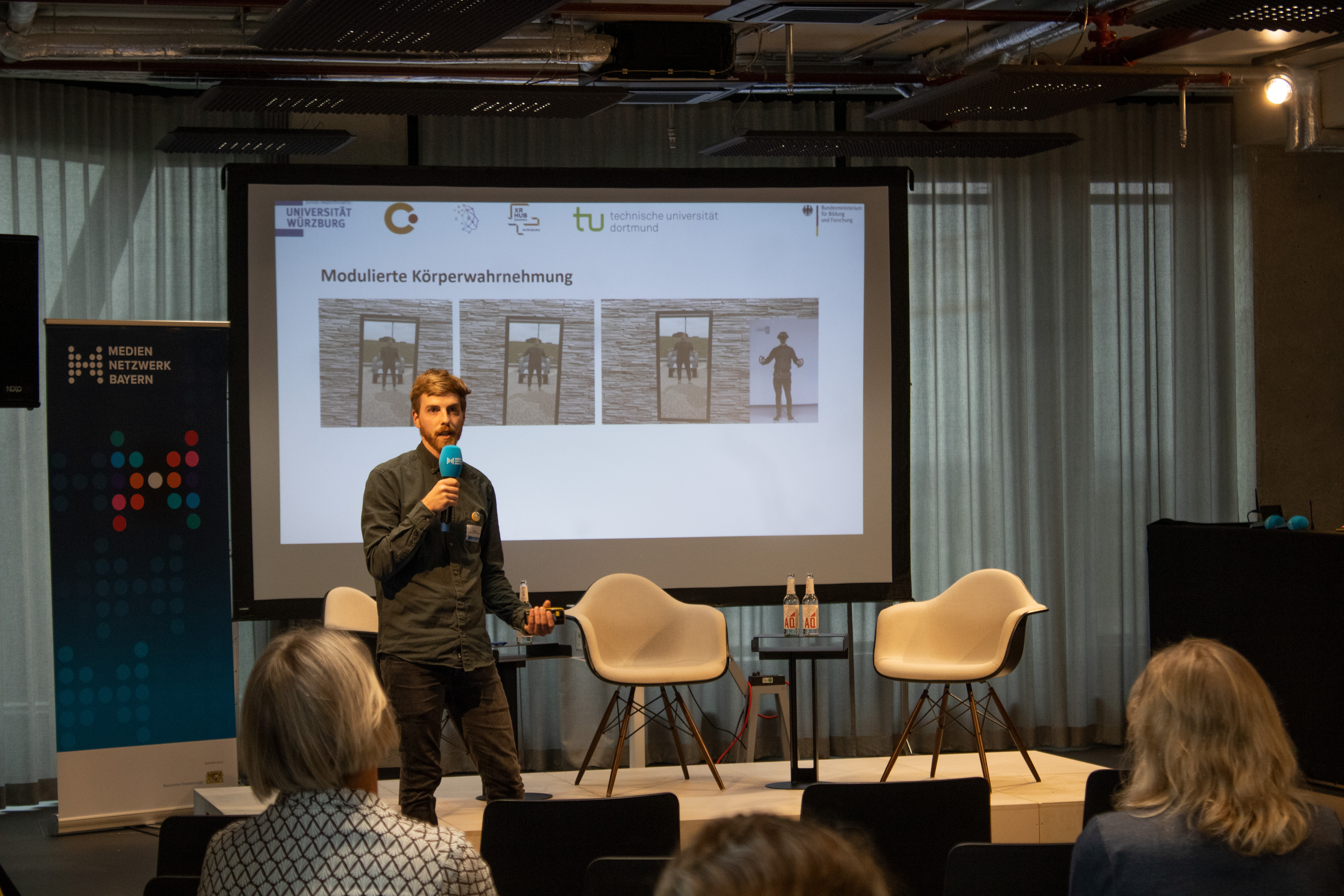
On May 24th, the XR Hub went on an excursion in order to be part of the "Media meets Health" event in Munich.
13 Jun 2022
More
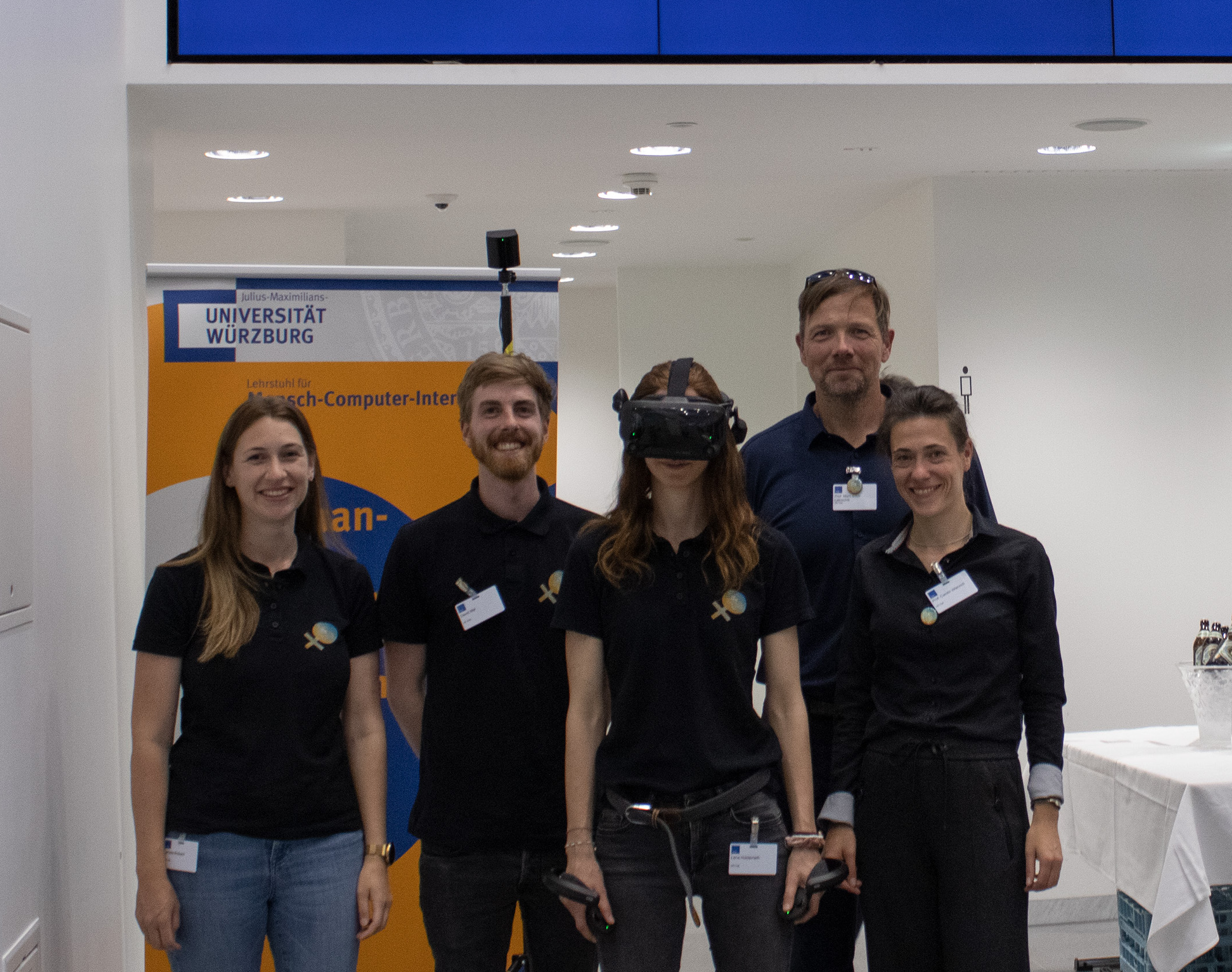
The XR-Hub was part of an extended reality event organized by the Bavarian Business Association on May 23rd.
13 Jun 2022
More
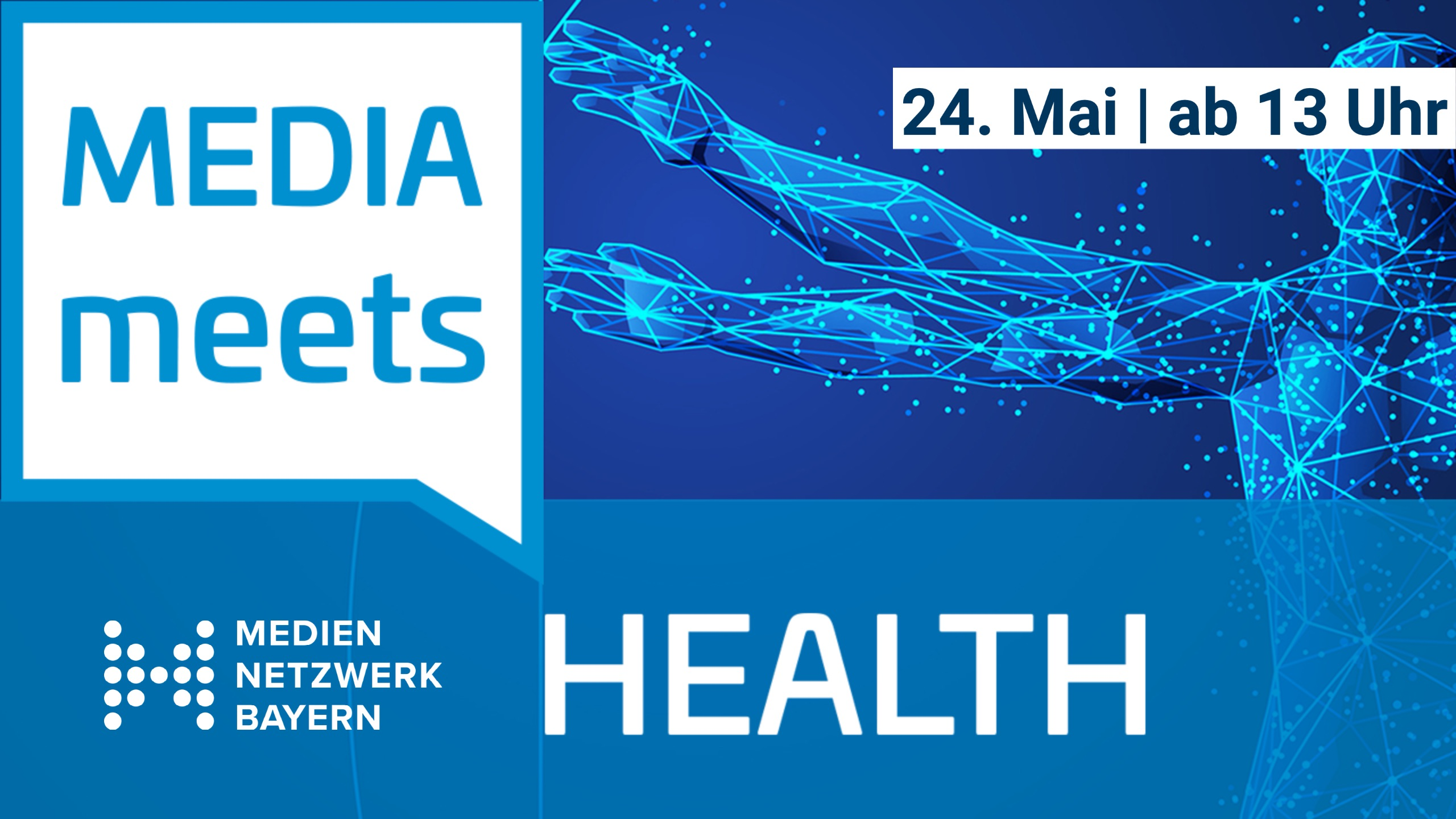
The MEDIA meets HEALTH event in Munich will take place on May 24th. The ViTraS project will be showcased and the XR Hub will be present.
16 May 2022
More
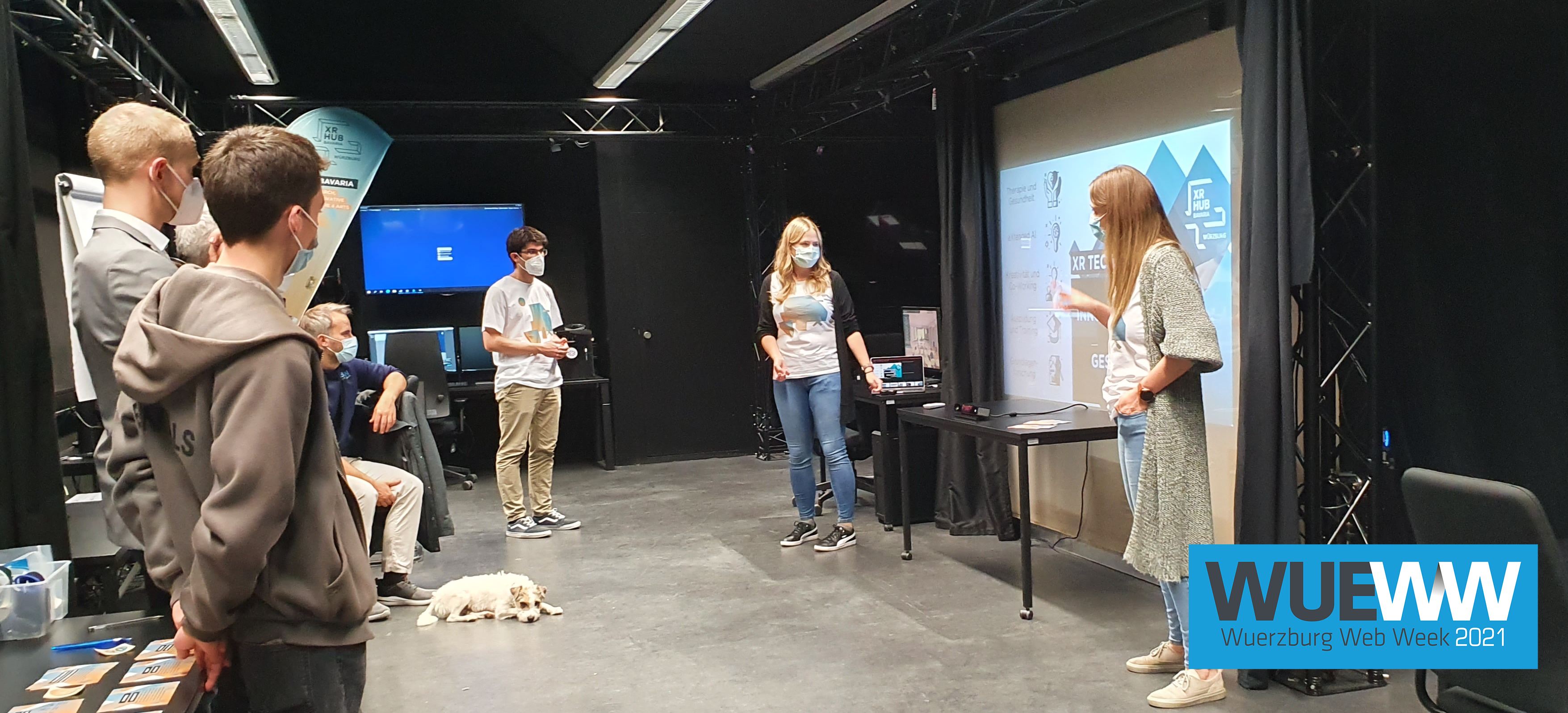
The XR Hub hosted an event for the WueWW on Friday, the 22nd of October 2021 to give an insight into the world of extended reality and to showcase fields of application of XR.
22 Oct 2021
More
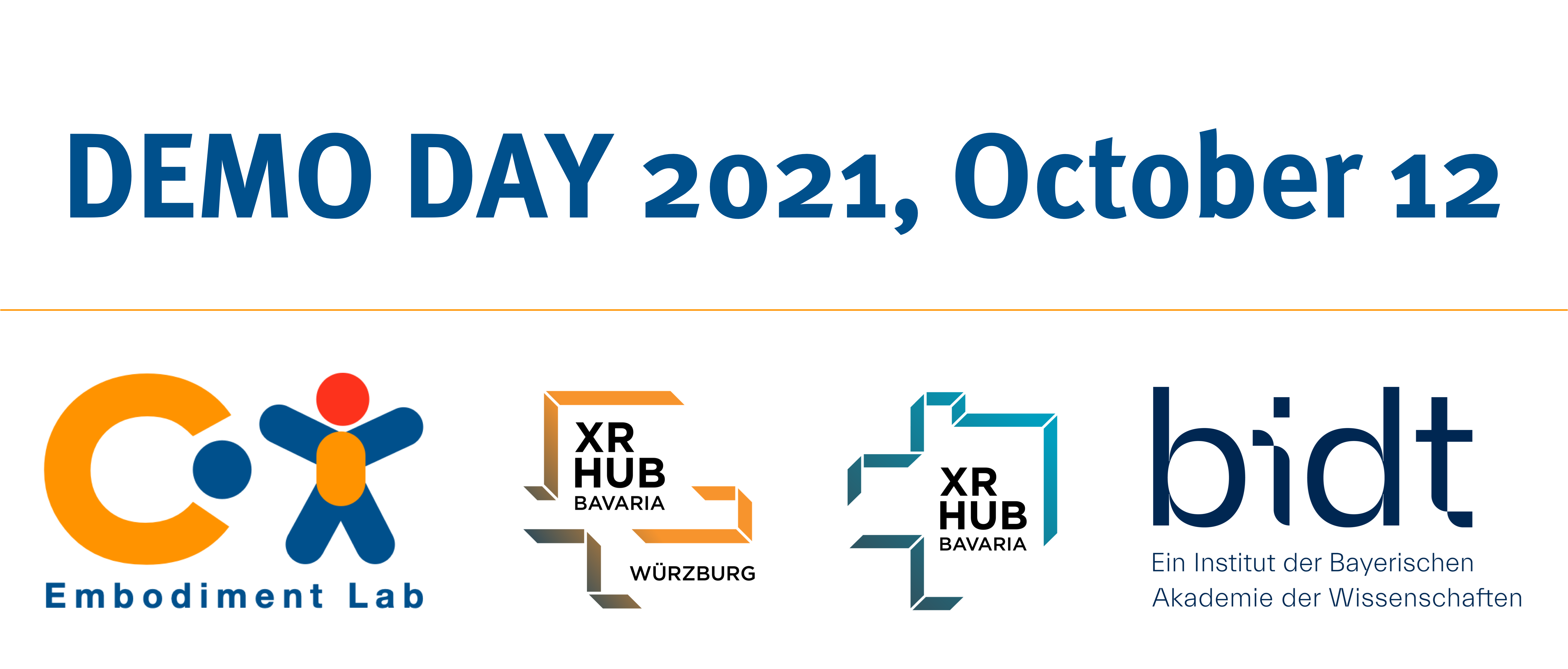
Save-the-date: The 2nd Demo Day of the Bavarian Innovation Labs will take place as an online event on Tuesday, October 12, 2021.
08 Oct 2021
More

The XR Hub Würzburg is thrilled to announce that we will participate in the WueWW! Join our talk and make sure to check out all of the other incredible events.
04 Oct 2021
Go to website
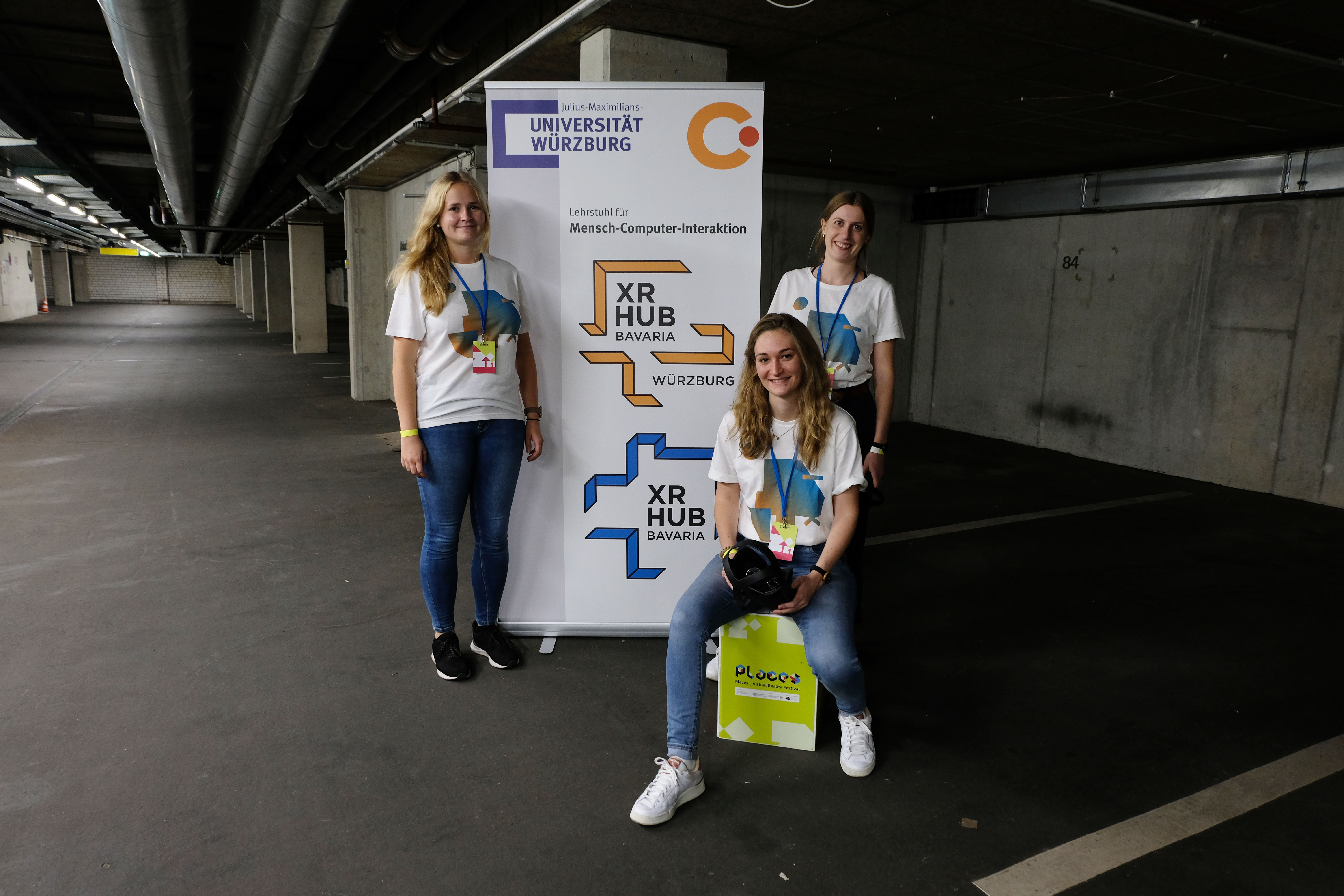
The Places_ VR Festival took place from 16th to 18th of September in Gelsenkirchen. The master thesis 'TooCloseVR', which is affiliated with the XR Hub Würzburg, was nominated for the Best Impact category of the DIVR Science Award.
16 Sep 2021
More
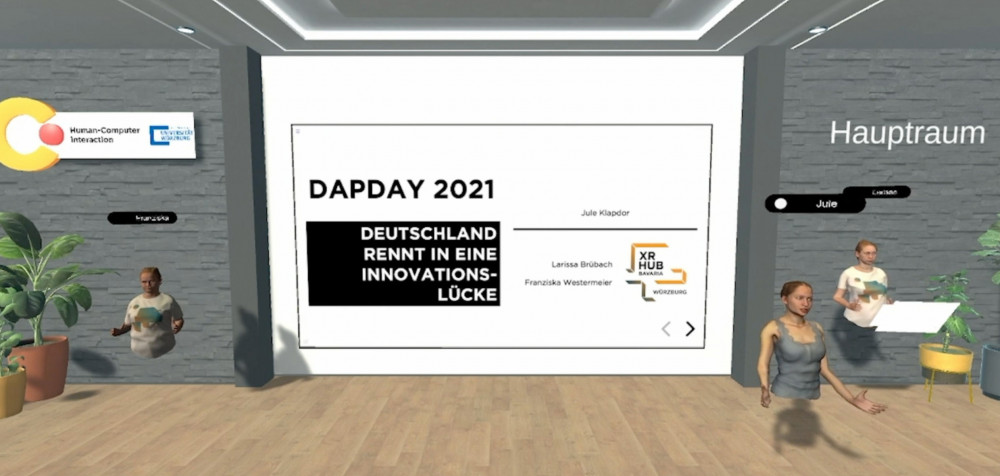
On September 10th the XR Hub was invited for a talk about the possibilities and advantages of XR technologies for innovations.
10 Sep 2021
Go to website
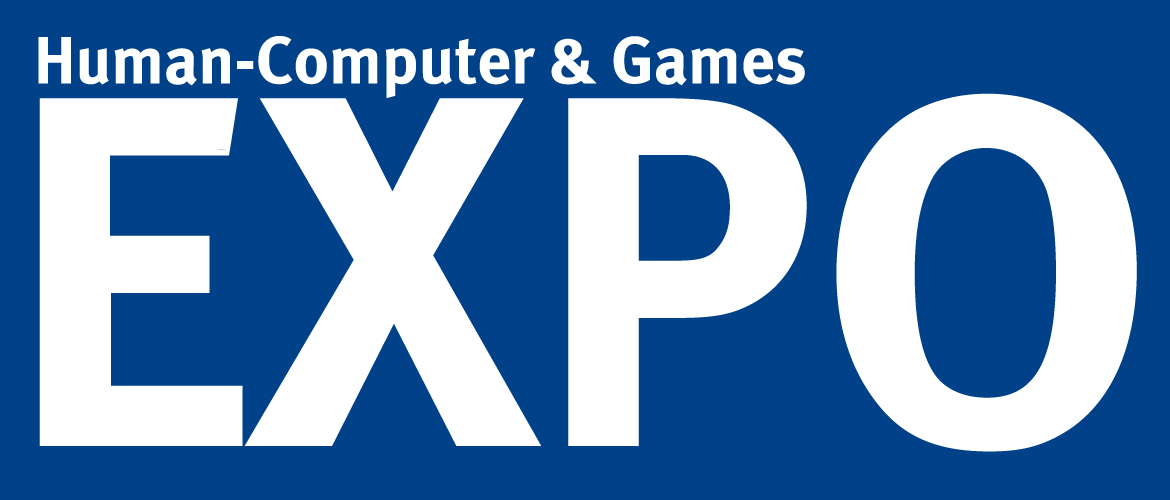
The Human-Computer, Games and Informatics Expo will take place on 16th of July 2021.
15 Jun 2021
Go to website
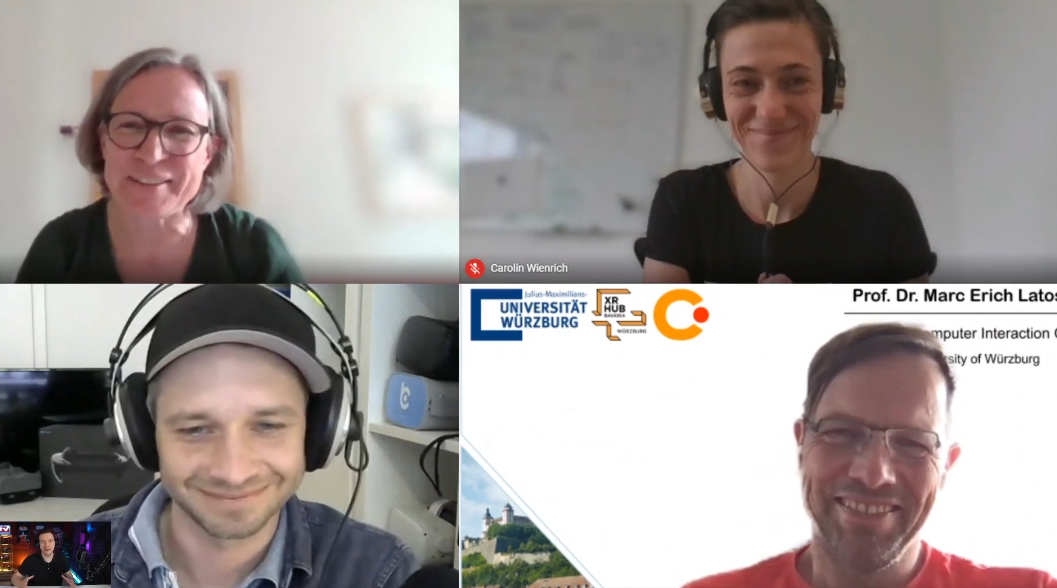
Check out the new video on networking in the XR community & how to help implement new ideas.
28 May 2021
Go to website
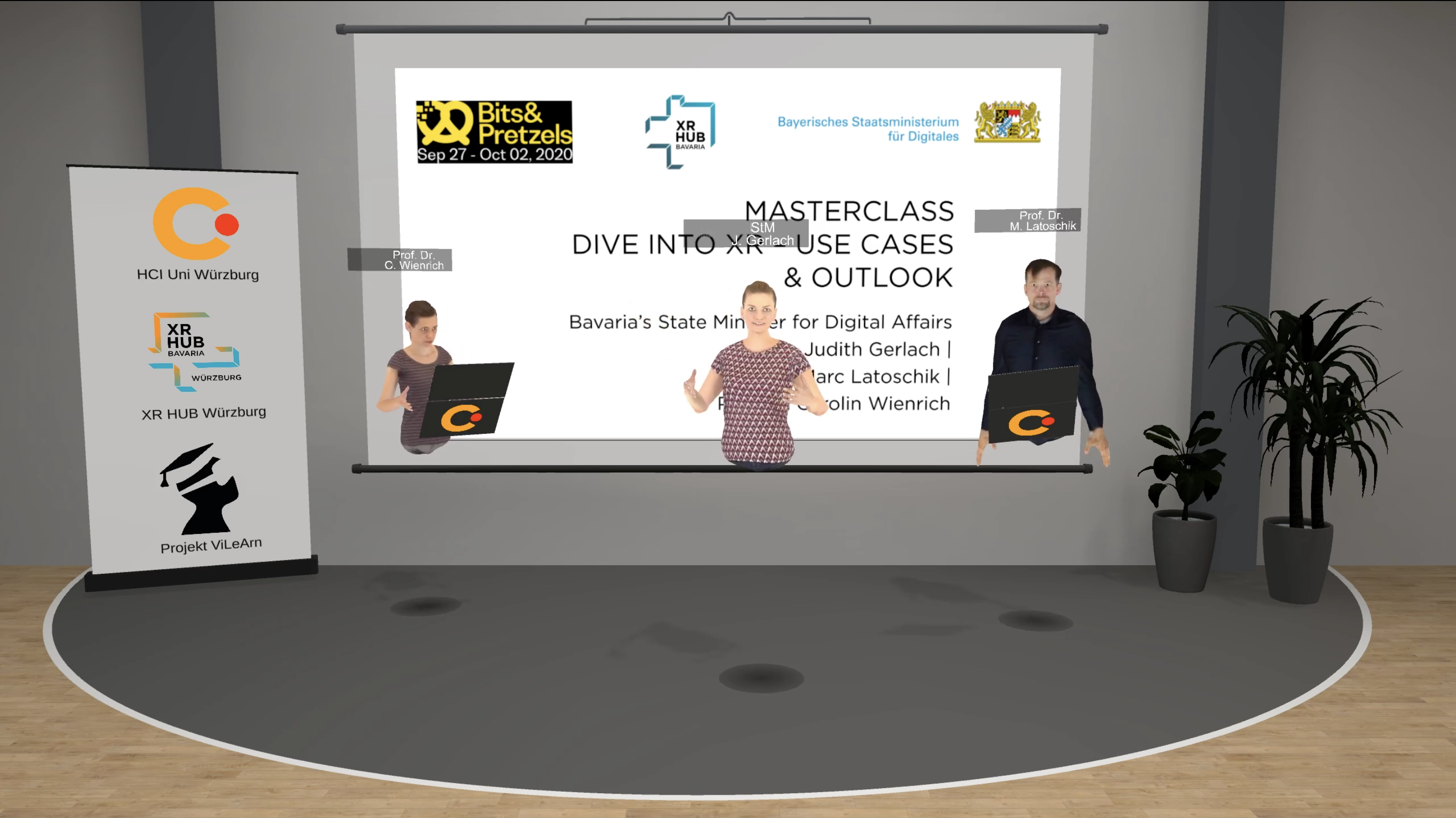
Together with Bavarian Minister of State Judith Gerlach the XR Hub gave a masterclass called "Dive into XR – use cases and outlook" at Bits&Pretezls 2020.
02 Oct 2020
More

The XR Hub is excited to announce that we will give a masterclass called "XR – Key to your Success" at the Bits&Pretzels 2020. Join us on Friday, October 2nd, at 3:40 pm when avatars explain extended reality!
27 Sep 2020
Go to website
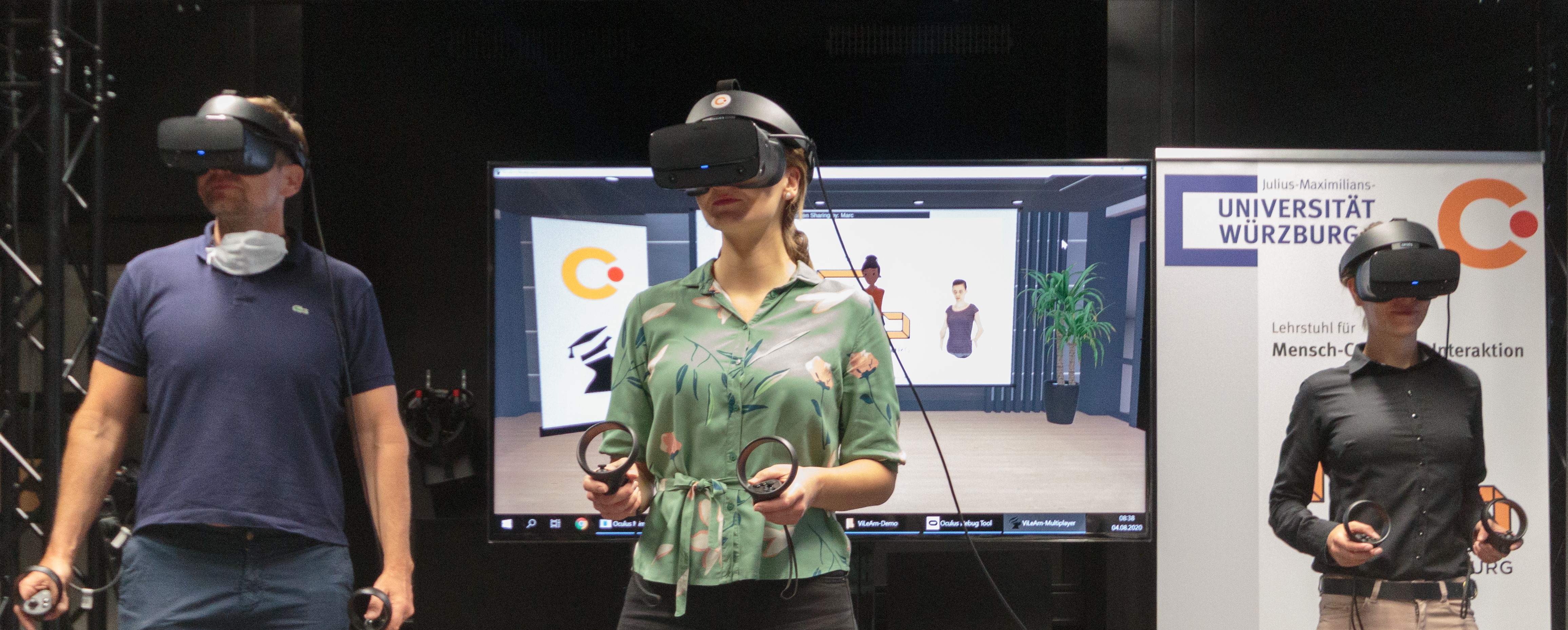
Judith Gerlach, the Bavarian Minister of State for Digital Affairs, visited the HCI and HTS chair on Tuesday, 4th August.
04 Aug 2020
More
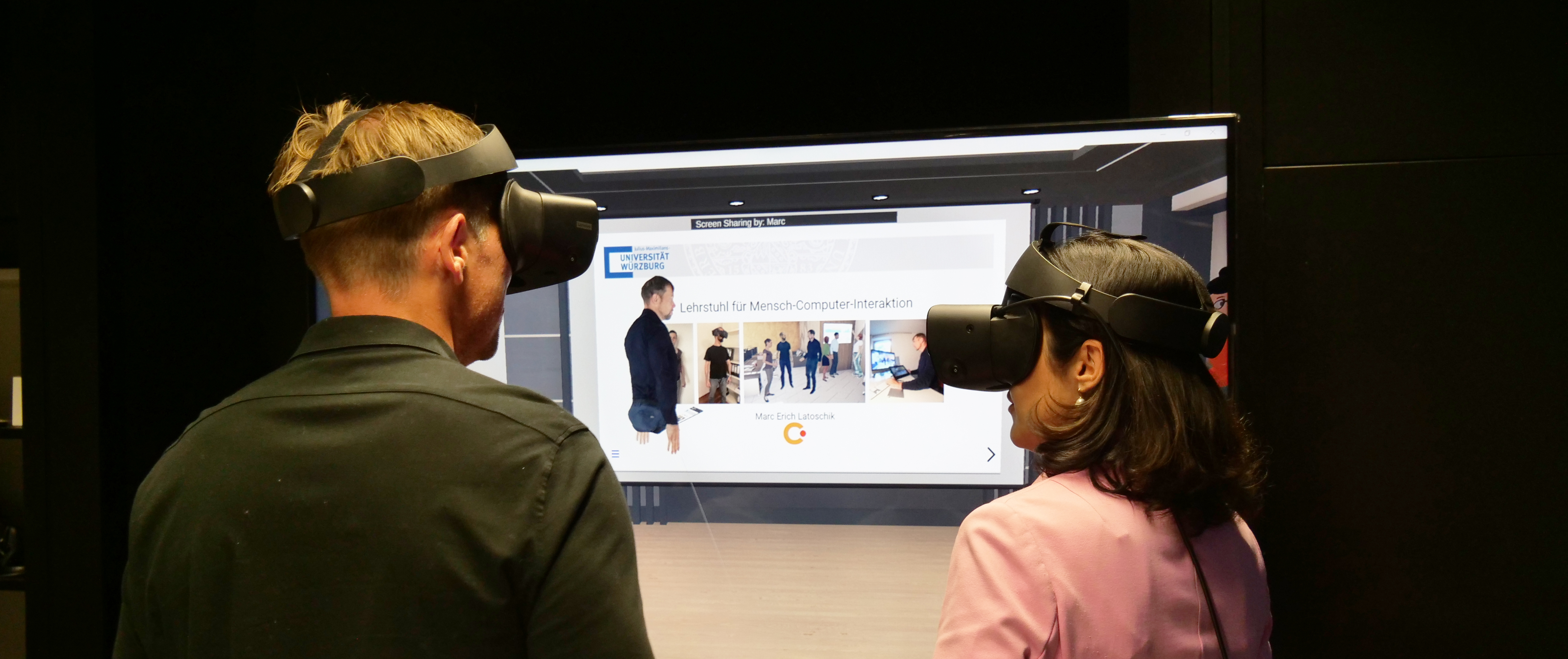
A Center for Artificial Intelligence in Data Science (CAIDAS) is being established at the University of Würzburg. Minister of State Dorothee Bär has informed herself about its research.
30 Jul 2020
More
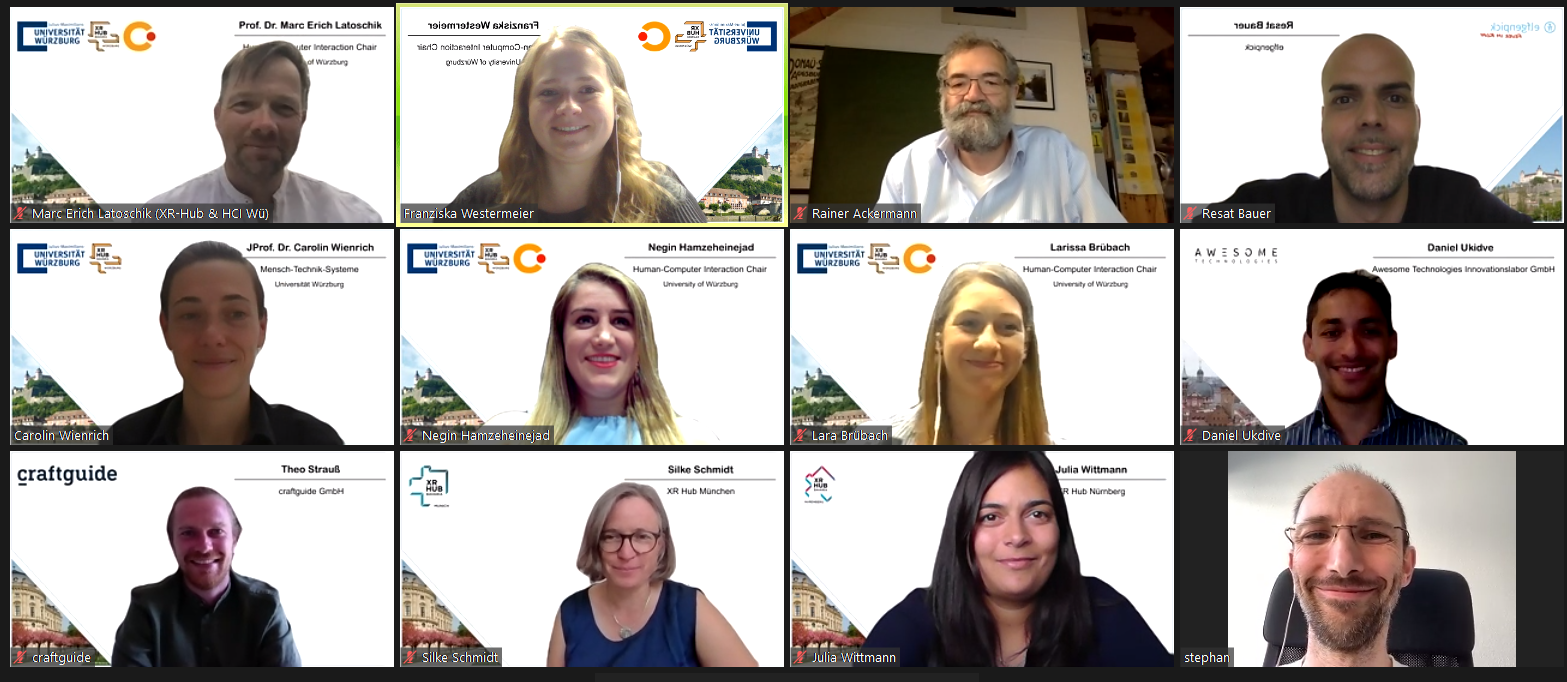
On the 21st of July representatives of XR affiliated companies met for the 1st Industrial Think Tank organized by the XR Hub Würzburg.
21 Jul 2020
More
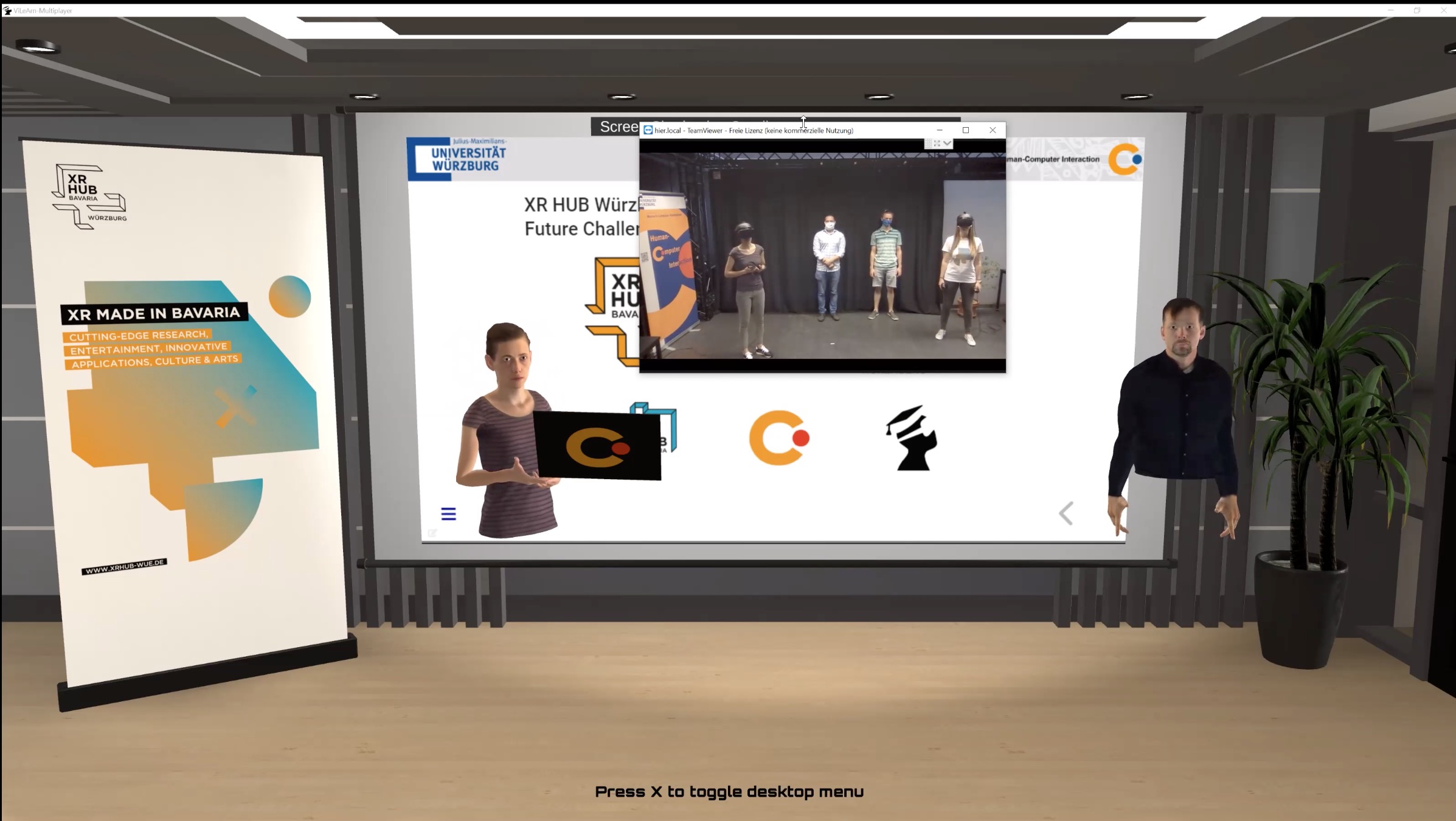
The project ViLeArn was presented at the Digital Day Bavaria 2020. As part of the XR-Hub slot, the current prototype of project ViLeArn was streamed via Zoom.
19 Jun 2020
More
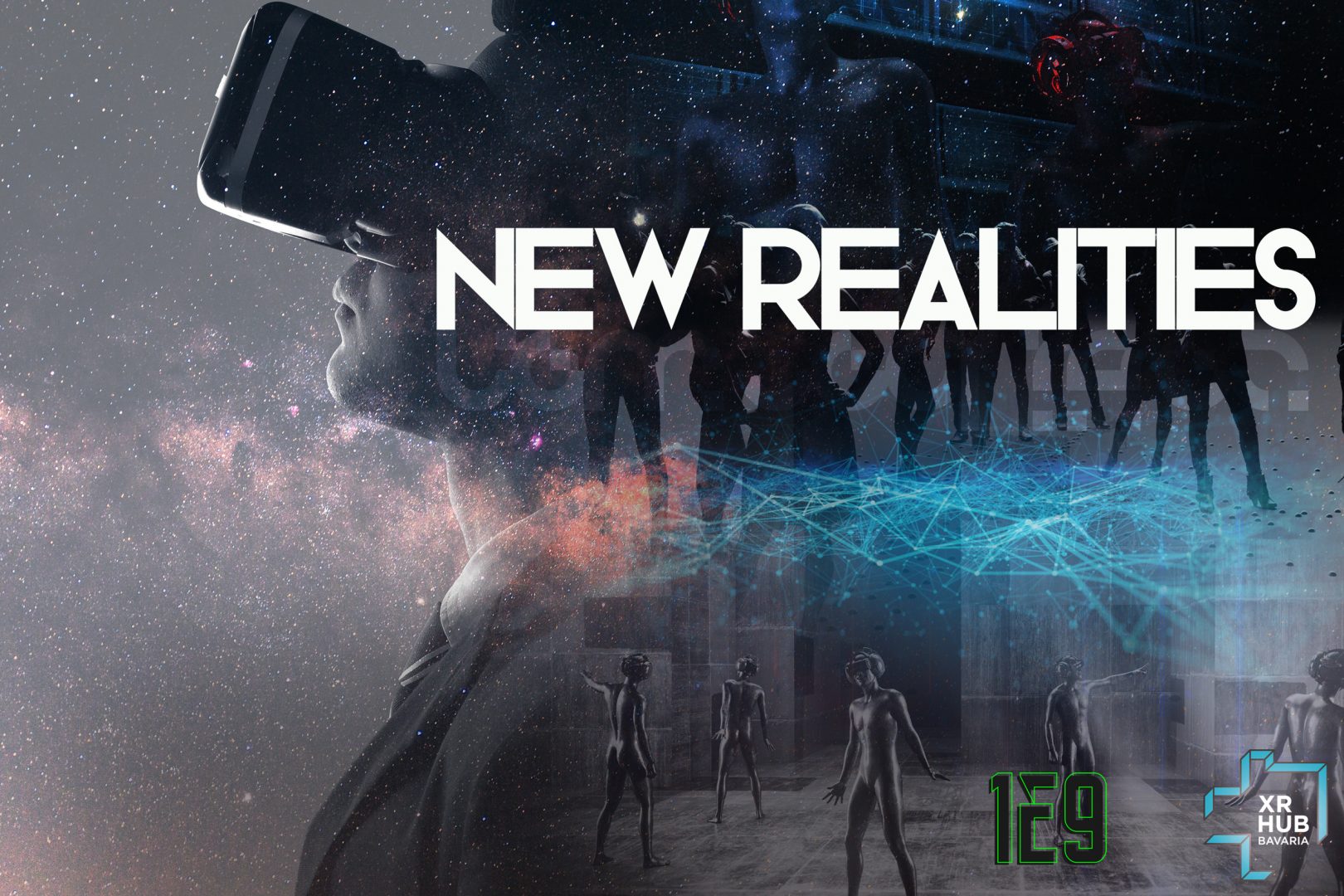
The potential of virtual and augmented reality in schools is great, and this has been scientifically proven. But how do you get teachers to actually use XR? Sebastian Oberdörfer talks about it in the 7th episode of the XR podcast.
14 May 2020
Go to website
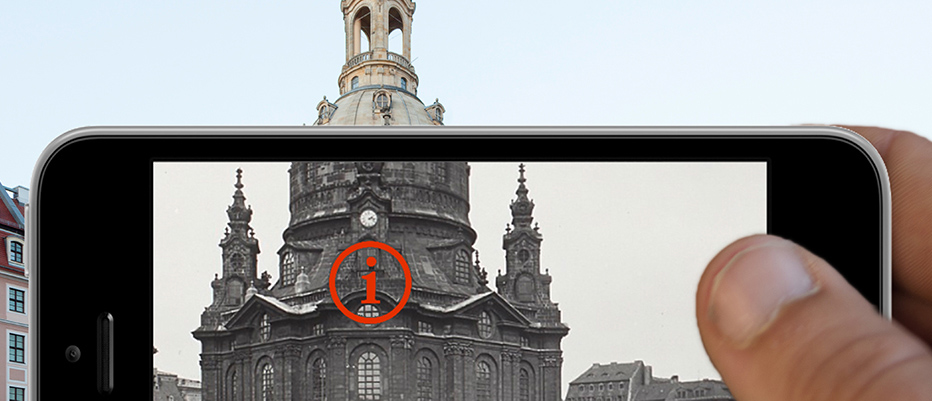
This DECH'17 workshop paper explores methods to work with digital image libraries, from the creation of 3D or in extension time-annotated 4D models, to the eventual dissemination of research findings in teaching/learning scenarios. Pedagogical approaches for learning objectives and methods for including Augmented Reality in mobile learning environments are reviewed.
02 Mar 2020
More
This TVCG'18 best journal paper investigates how personalized and individualized avatars affect body ownership, presence, and emotional response. Several significant as well as a number of notable effects were found, most notably that personalized avatars significantly increase body ownership.
02 Mar 2020
More
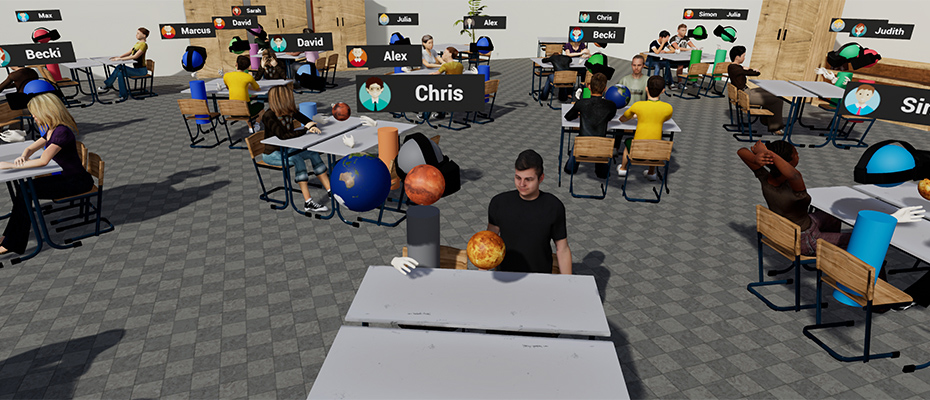
This TVCG'19 journal paper investigates performance and user experience of Social Virtual Reality (SVR) targeting distributed, embodied, and immersive, face-to-face encounters. As one result, a user study reveals positive effects of an increasing number of co-located social companions on the quality of experience of virtual worlds.
02 Mar 2020
More
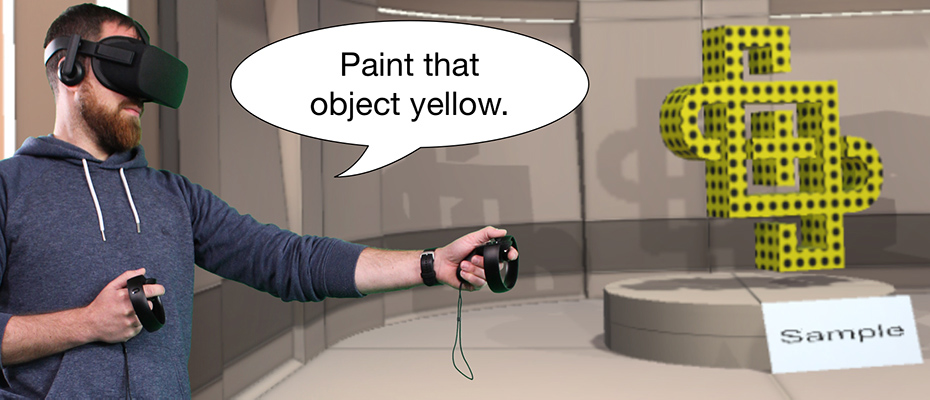
This ICMI'19 *Best Paper Runner Up* article presents a speech and gesture-based interaction paradigm for creative design tasks in VR. The multimodal approach resulted in several advantages, including improved perceived usability, an increased sense of flow and a higher sense of presence.
02 Mar 2020
More
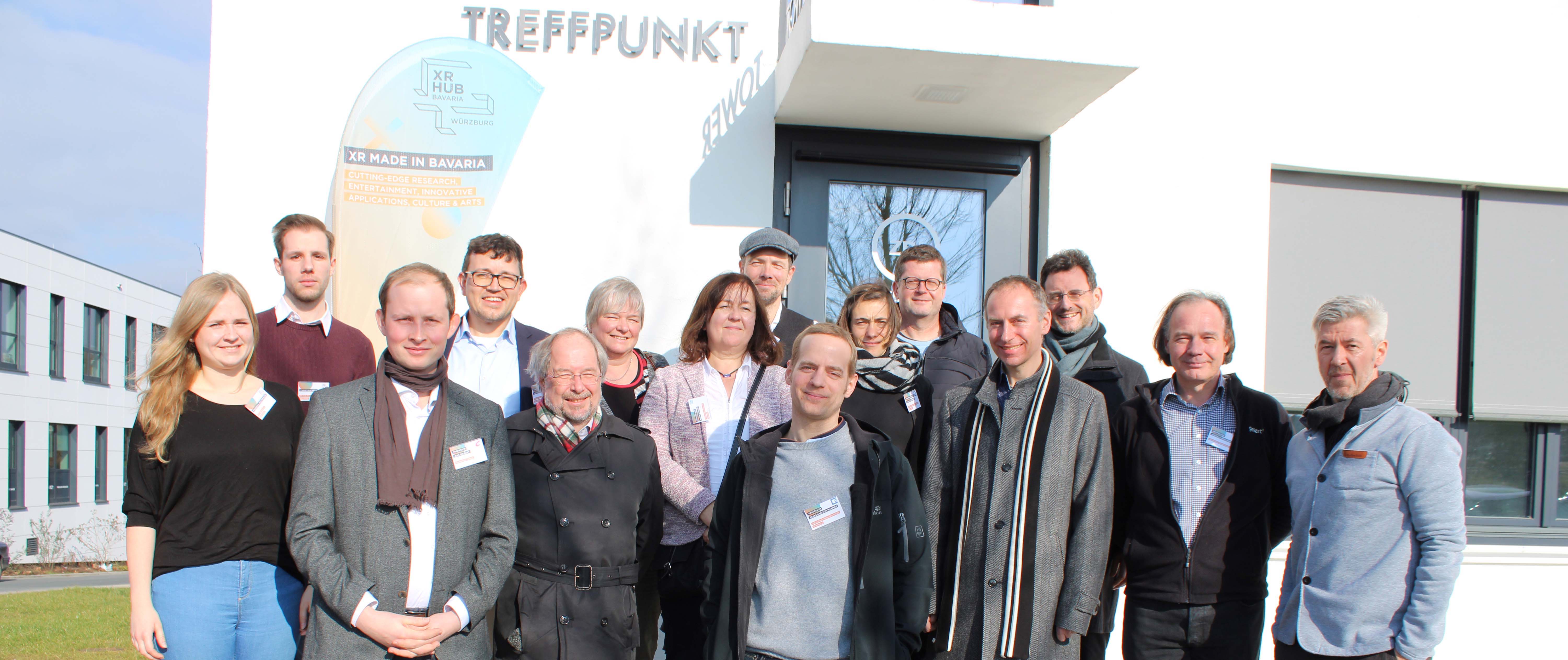
On the 7th of February, academic representatives of Bavarian research groups gathered to conduct the first Think Tank Academic Research in XR.
07 Feb 2020
More
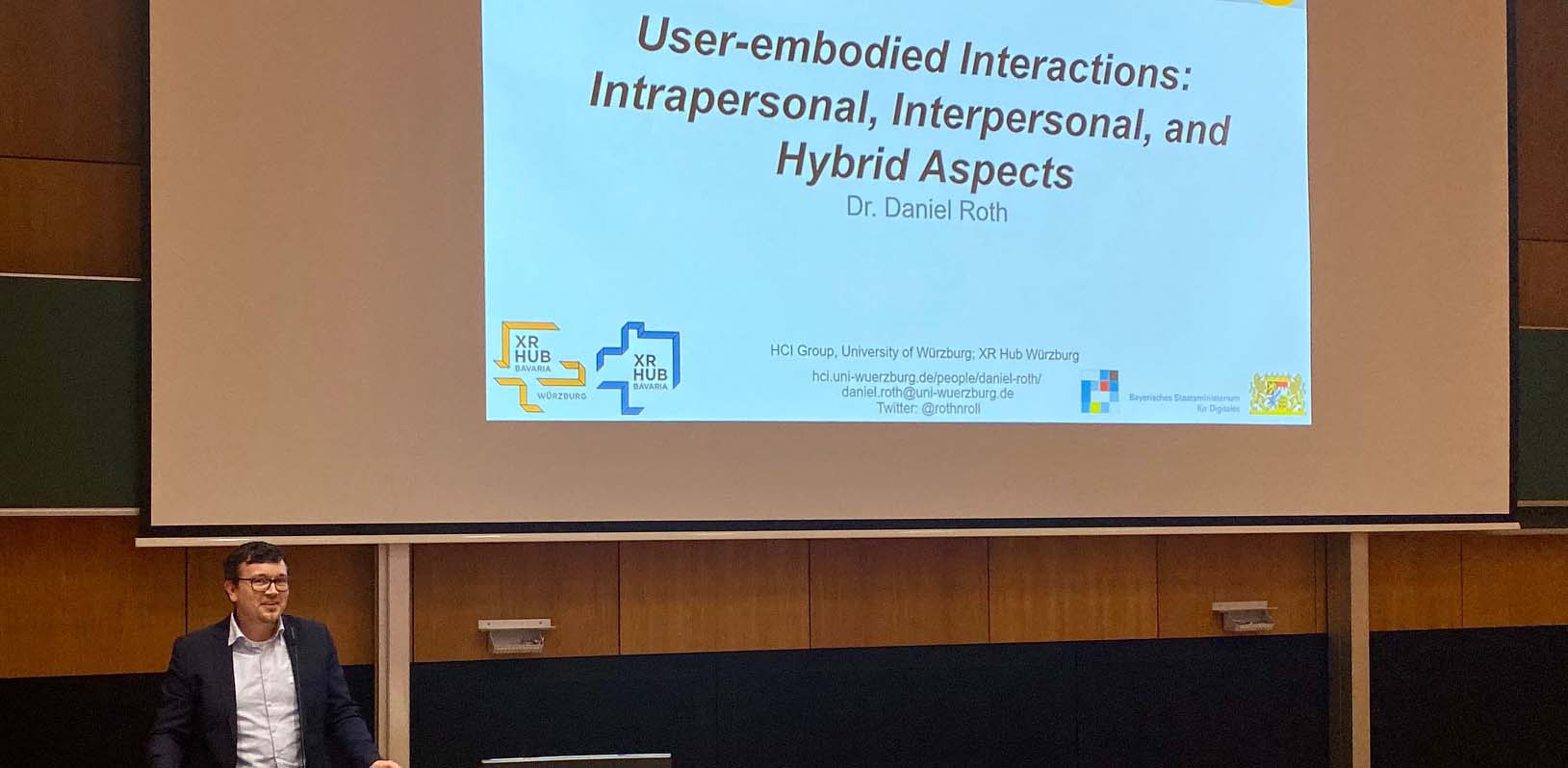
On January 24th, the XR Hub Würzburg and XR Hub Munich Team made an excursion to our colleagues at the FH Upper Austria, Hagenberg Campus to visit their second Mixed Reality Day, organized by Prof. Christoph Anthes.
24 Jan 2020
More
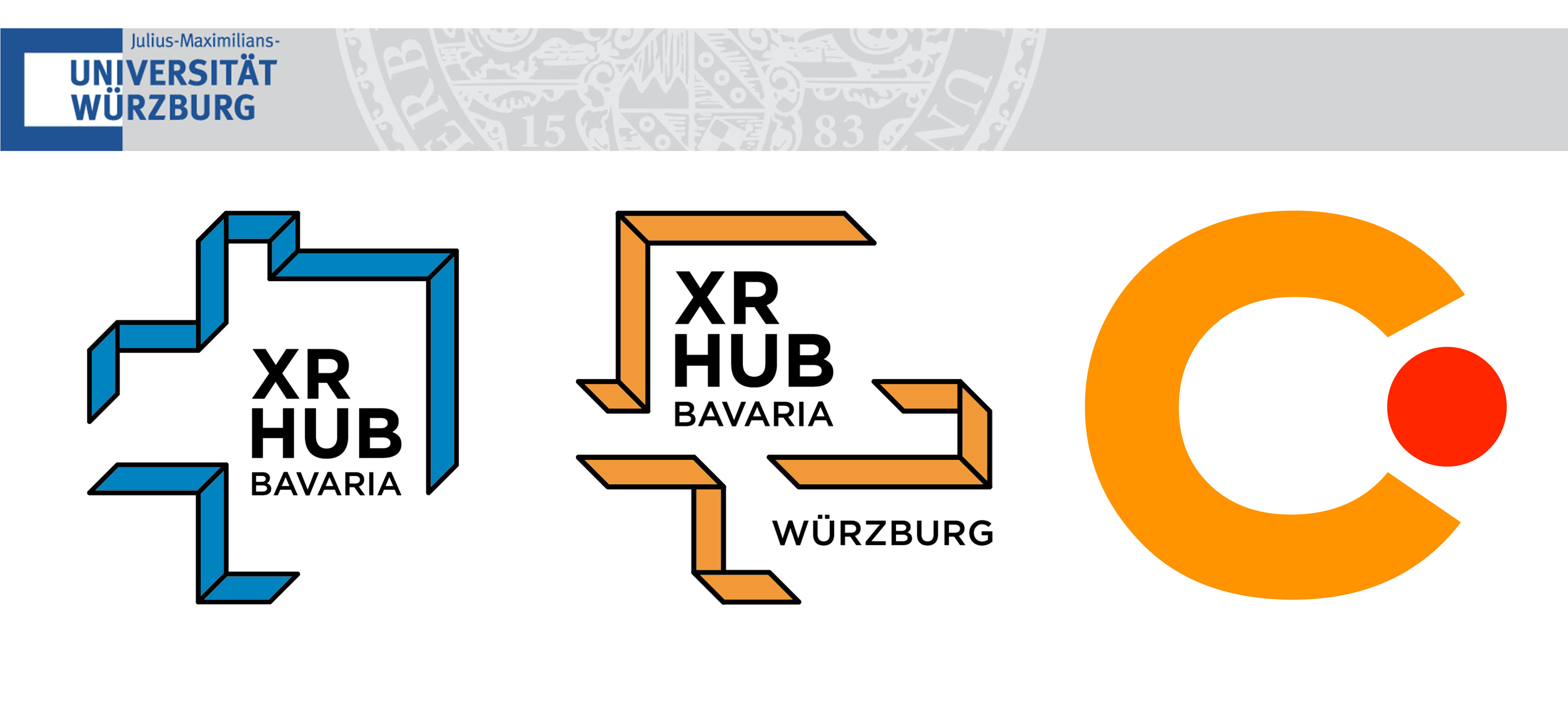
Virtual reality, extended reality, human-computer interaction in education and training - these are the topics of Prof. Marc Latoschik's lecture on 24.01.2020 at 13:00 in the Aquarium of FOS/BOS Kitzingen.
23 Jan 2020
More
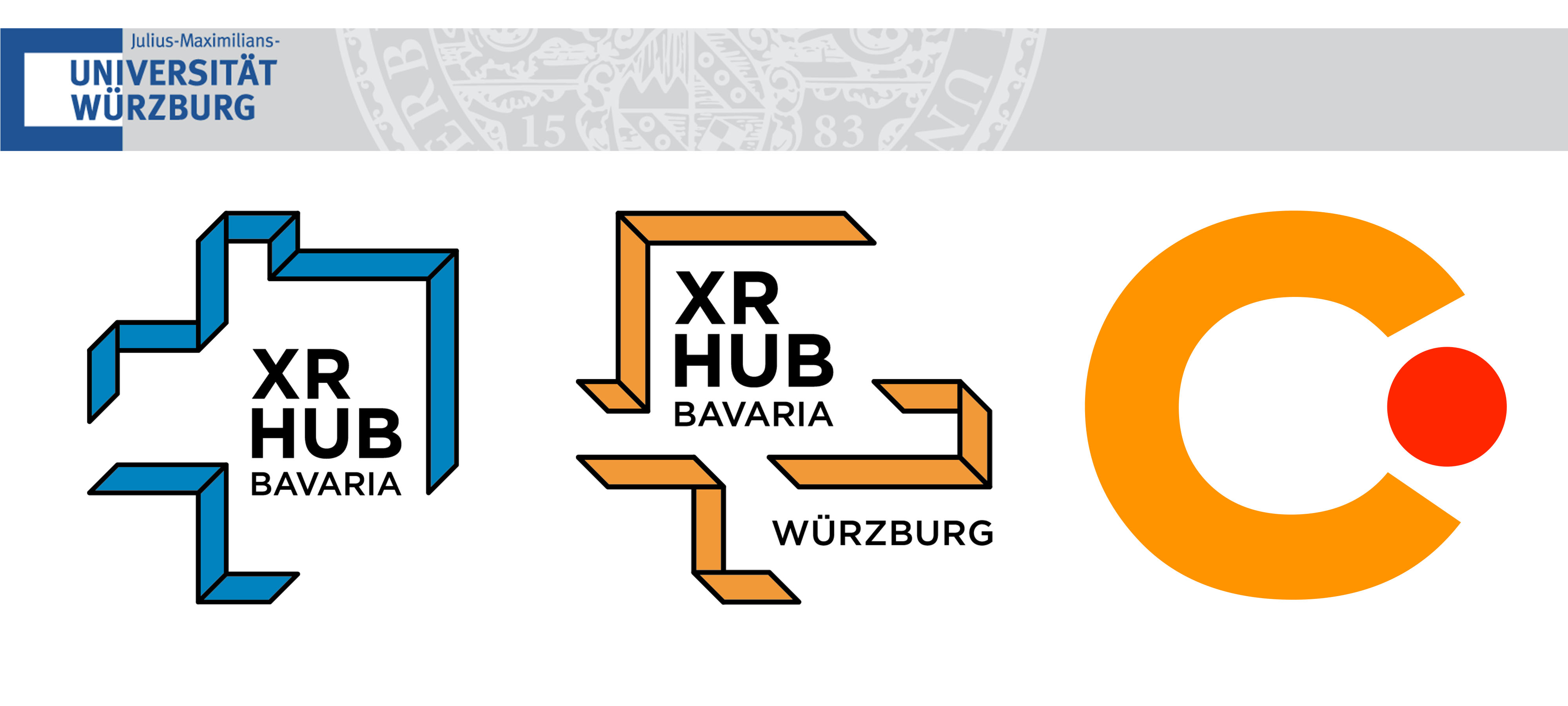
The Bavarian Ministry of Digital Affairs is creating a competence centers for key technologies in the field of eXtended Reality, called 'XR Hubs', that will network small and medium-sized companies in Bavaria and support them in technology transfer. In addition to a central hub in Munich, 500,000 € per year are invested in regional hubs. The XR Hub Lower Franconia will cooperate with the HCI chair Würzburg.
27 Sep 2019
Go to website
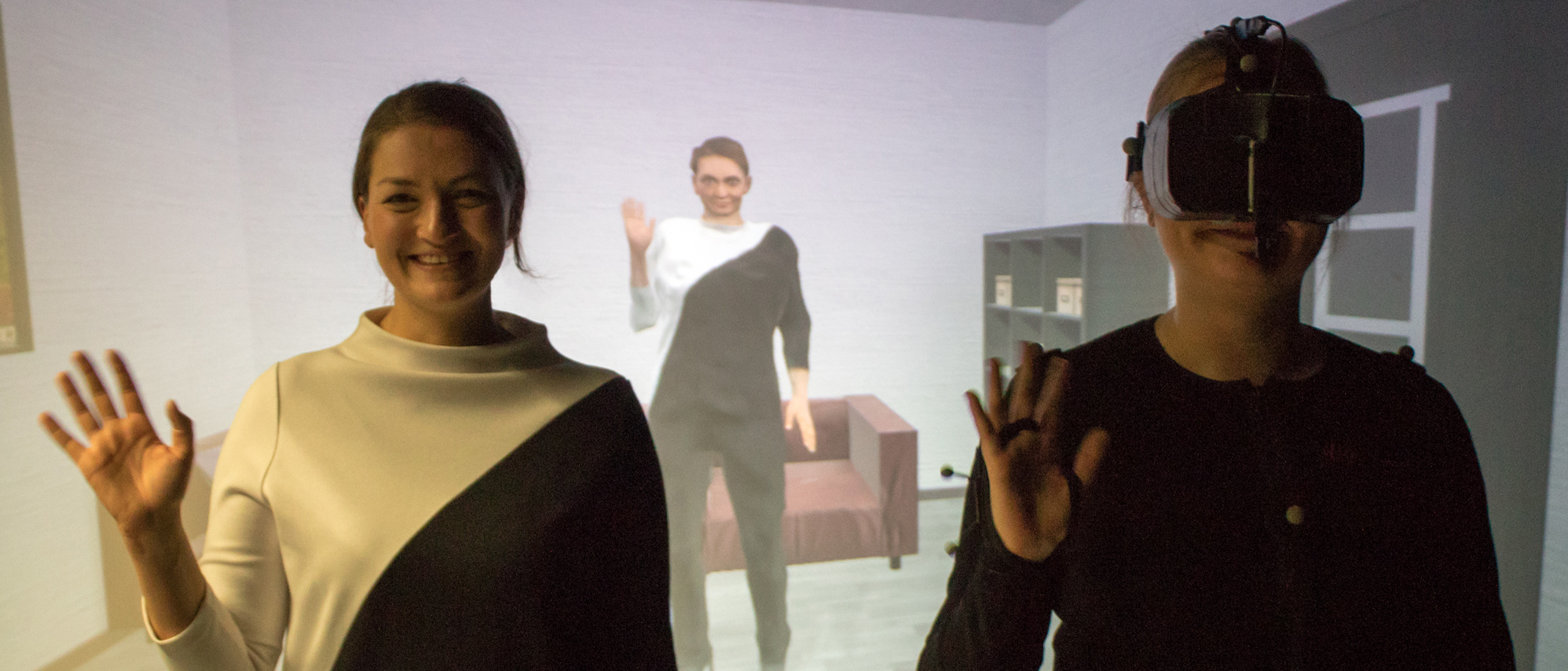
Judith Gerlach, the Bavarian Minister of State for Digital Affairs, visited the chair HCI on Monday, 29th April.
24 Apr 2019
More






